Cervical disease تجميعات
Cervical disease Quiz
Q1: When should married women start to have pap smear screening
A) 20-24
B) 25-29
C) 30-34
D) 35-39
Q2: 20 y/o girl divorce came to clinic first visit, When to do pap smear
A) Now
B) 1 year after at 21 years
C) 5 years
D) No need
Q3: 18 Years old female came to ask for pap smear screening
A) tell her its not the time for it
B) do it for her if she’s sexually active
C) refuse
D) refer to OB/Gyn
Q4: 22 years old, female married never did pap smear before when to do it
Immediately
3 years
5 years
No need
Q5: How to do a Pap smear
From transformation Zone
From the Ectocervix
From the endocervix
Q6: Which of the following is the recommended frequency of Pap smear screening for cervical cancer
A) Every year
B) Every 2 years
C) Every 3 years
D) Every 5 years
Q7: 31 year female has pap smear negative in the last 5 years, and does pap smear today and result shows negative. When to do it
A) after 1 year
B) after 3 years
C) after 5 years
D) no need
Q8: 22 year old female patient, medically free & married, came to the gynaecology clinic for routine check up, her abdominal and pelvic exam was normal, breast exam was normal too, her cycle is regular and she has mild breast pain 3 days before her menstruation, she’s planning to get pregnant in the next 2 years, what are you going to do
A) US
B) mammogram
C) Papanicolaou test
Q9: A newly married 22 year old comes to you for a regular follow-up for her gynecological health. She is medically free and has a regular 28 day cycle; complaining of mobile breast lumps bilaterally that are painful right before her menses. She wants to get pregnant, but she is worried about her breast lump. What is the most appropriate action
A) bilateral mammography
B) Pap smear
C) Breast ultrasound
Q10: A 40-year-old sexually active patient presents for cervical cancer screening. Physical examination is unremarkable, menstruation is regular with a 28-day cycle and last menstrual period was 5 days ago. Which of the following Is the best advice about Pap smear
A) Every 5 years is recommended
B) No routine screening recommended
C) Three negative results and no further screening
D) Yearly screening recommended
Q11: 31 female, came for pap smear when to do it
A) Every 2 year
B) Every 3 year
C) Every 5 years
D) If 3 is negative, no need to re-screen again
Q12: 40 year Female patient Pap smear done before 7 years ago result was atypical hyperplasia, Now came to clinic what to do:
A) Repeat Pap smear
B) Colposcopy
C) CT
Q13: When to start HPV SCREENING for cervical cancer]
A) 20-24
B) 25-29
C) 30-34
D) 35-39
Q14: A 24-year-old woman comes to the clinic. She is married for 3 years and has no previous pap smears. She asks for a pap smear during the visit.
A) Should get pap smear during this visit
B) Next screening after 5 years with a combination of cytology and HPV testing
C) Cervical cancer screening in women younger than 30 years is likely to lead to more harms than benefits
D) Do not screen now. wait until she is 30 years of age
Q15: 40 year old female patient underwent PAP smear histopathology showed atypical squamous cells of undetermined significance (ASCUS), your next step
A) Do HPV test
B) Colposcopy
C) Re-evaluate after 6 months
D) Surgery
Q16: 30y old female came for pap screening, all her past results were negative, now results show low grade squamous epithelial lesion (LSLI). What’s the appropriate next step
A) Human papillomavirus
B) Colposcopy
C) Evaluate after 6 months
D) Surgery
Q17: Female 30-year-old her pap smear result showed squamous cell carcinoma (SCC), what to do next
A) Colposcopy directed biopsy
B) Repeat pap smear
C) Total hysterectomy
D) Neoadjuvant chemotherapy
Q18: 27 year old female came for follow up she is asymptomatic last Pap smear was 3 years ago and it showed unconcerned squamous cell, what to do:
A) Repeat Pap with cytology
B) Reassure
C) Colposcopy
D) D-Cervical swab
Q19: A 31-year woman P2 presented to the Women’s Health Clinic for a routine physical examination. She has presented to routine health examinations annually for the last 5 years. Records indicate that in the previous year, she has negative tests for both the human papillomavirus and the papanicolaou cervical smear. This year both tests are with no abnormal findings. When should the tests be repeated
A) 6 months
B) 1 year
C) 2 years
D) 3 years
Q20: 34 years old women did pap smear show ASCUS what to do next
A) Repeat pap.
B) HPV
C) Colposcopy
D) Conization
Q21: 32 year Female heavy smoker (2 packs/week) for the past 7 years. And since then show was doing Pap smear and all negative. This time it shows LSLI, what will you do
A) Colposcopy
B) HPV DNA
C) Pap smear
Q22: Pap test came with high grade squamous intraepithelial lesion, next step is
A) Colposcopy
B) Repeat pap test
C) Hysterectomy
Q23: Female with cervical lesion measuring 11mmx12mm with irregular borders, pap was done, no results yet, what to do
A) Excise the lesion
B) Biopsy
C) Reassure
D) HPV test
Q24: Young patient did pap smear in screening and showed high grade squamous intraepithelial lesion, the biopsy showed carcinoma in situ, she wants to conserve her fertility
A-Cold knife (conization)
B. Electrosurgical loop (LEEP)
C. Cryotherapy
D. Laser
Q25: 40 years old with post coital bleeding and intermenstrual bleeding. She had 3 pap smears positive and did a colposcopy which showed intraepithelial carcinoma. What is the next step
A-MRI abdomen
B. Cone biopsy
C. Loop electrosurgical excision procedure
D. CT abdomen chest pelvis
Q26: Old woman with fungating mass from cervix, highest diagnostic value:
A-Pap
B. Colposcopy
C. Biopsy
D. MRI pelvis
Q27: Females with abnormal Pap smear and colposcopy show invasive carcinoma:
A-Clinical staging
B. Hysterectomy and chemotherapy
C. Hysterectomy and radiotherapy
Q28: 33 years old female came to you at your office and her pap smear report was unsatisfactory for evaluation, the best action is:
A-Consider it normal & D/C the pt.
B. Repeat it immediately
C. Repeat it as soon as possible
D. Repeat it after 6 months if considered low risk
E. Repeat it after 1 year if no risk
Q29: 34 y/o female, 30 weeks gestation with painless vaginal bleeding, did vaginal examination found suspicious mass. Report: US shows that the fetus corresponds to the gestational age. What is the most appropriate next step
A-Colposcopy
B. Cone biopsy
C. Pap smear
D. Endocervical curettage
Q30: Pregnant with vaginal bleeding, suspect cervical lesion, how to confirm diagnosis
A-Pap smear
B. Colposcopy directed biopsy
C. Cone biopsy
Q31: A 35-year healthy woman attended the Gynecological Clinic for her regular Pap smear screening. Upon speculum pelvic examination, the uterine cervix appeared raised irregular mass measuring 10 X 12 mm localized on the cervix left lateral aspect. The most appropriate next step
A-Excise the lesion
B. Tissue biopsy from the mass
C. Human papilloma virus infection test
D. Reassurance until the pap smear result
Key Answer :
Q1: 20-24
Q2: 1 year after at 21 years
Q3: tell her its not the time for it
Q4: Immediately
Q5: From transformation Zone
Q6: Every 3 years
Q7: after 3 years
Q8: Papanicolaou test
Q9: Pap smear
Q10: A) Every 5 years is recommended
Q11: B) Every 3 year
Q12: Repeat Pap smear
Q13: 30-34
Q14: A) Should get pap smear during this visit
Q15: A) Do HPV test
Q16: A) Human papillomavirus
Q17: A) Colposcopy directed biopsy
Q18: A) Repeat Pap With Cytology
Q19: D) 3 years
Q20: B) HPV
Q21: B) HPV DNA
Q22: A) Colposcopy
Q23: B) Biopsy
Q24: B. Electrosurgical loop (LEEP)
Q25: C. Loop electrosurgical excision procedure
Q26: C. Biopsy
Q27: A. Clinical staging
Q28: C. Repeat it as soon as possible
Q29: A. Colposcopy confirmed by
Q30: B. Colposcopy directed biopsy
Q31: B. Tissue biopsy from the mass


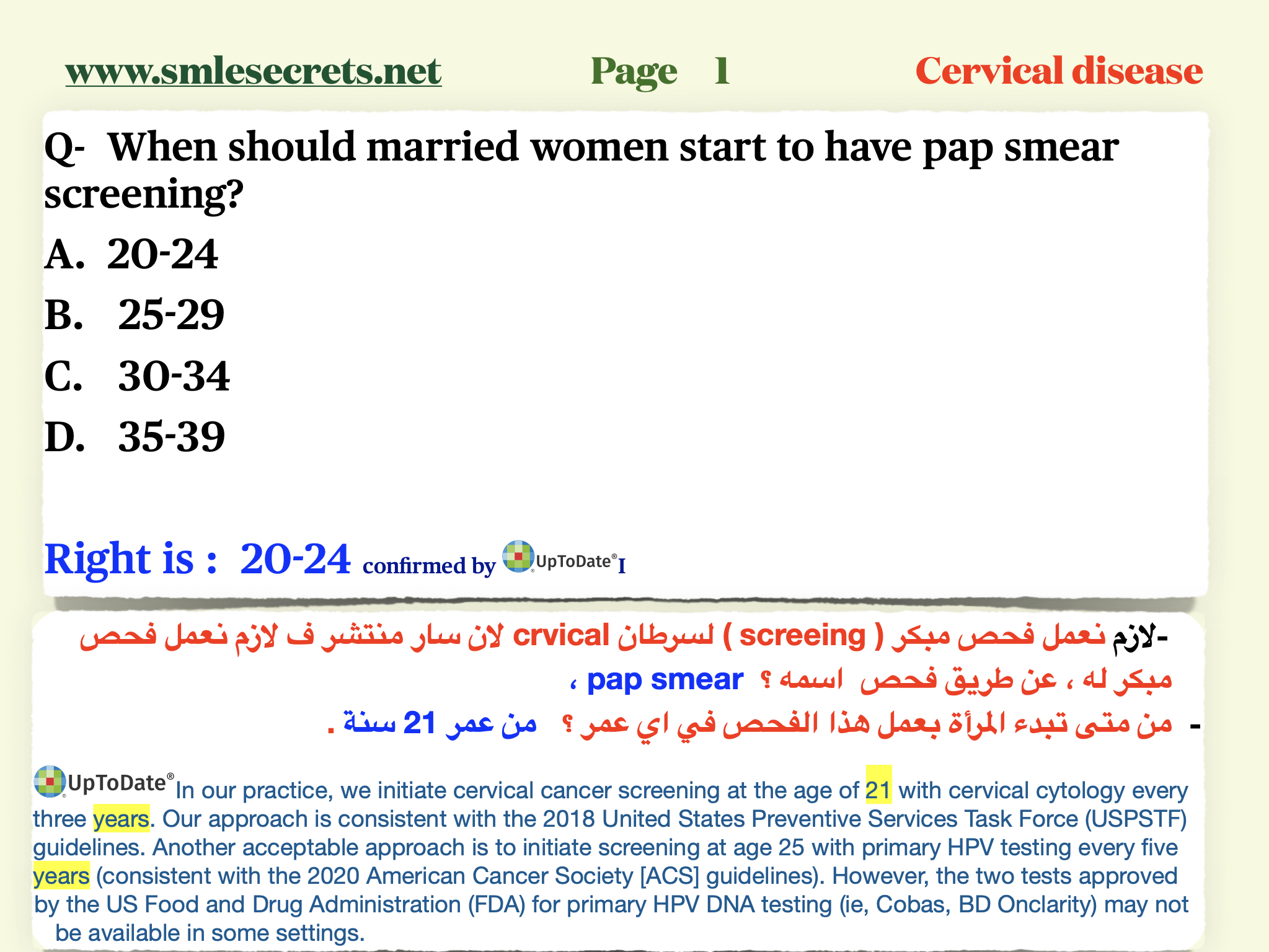
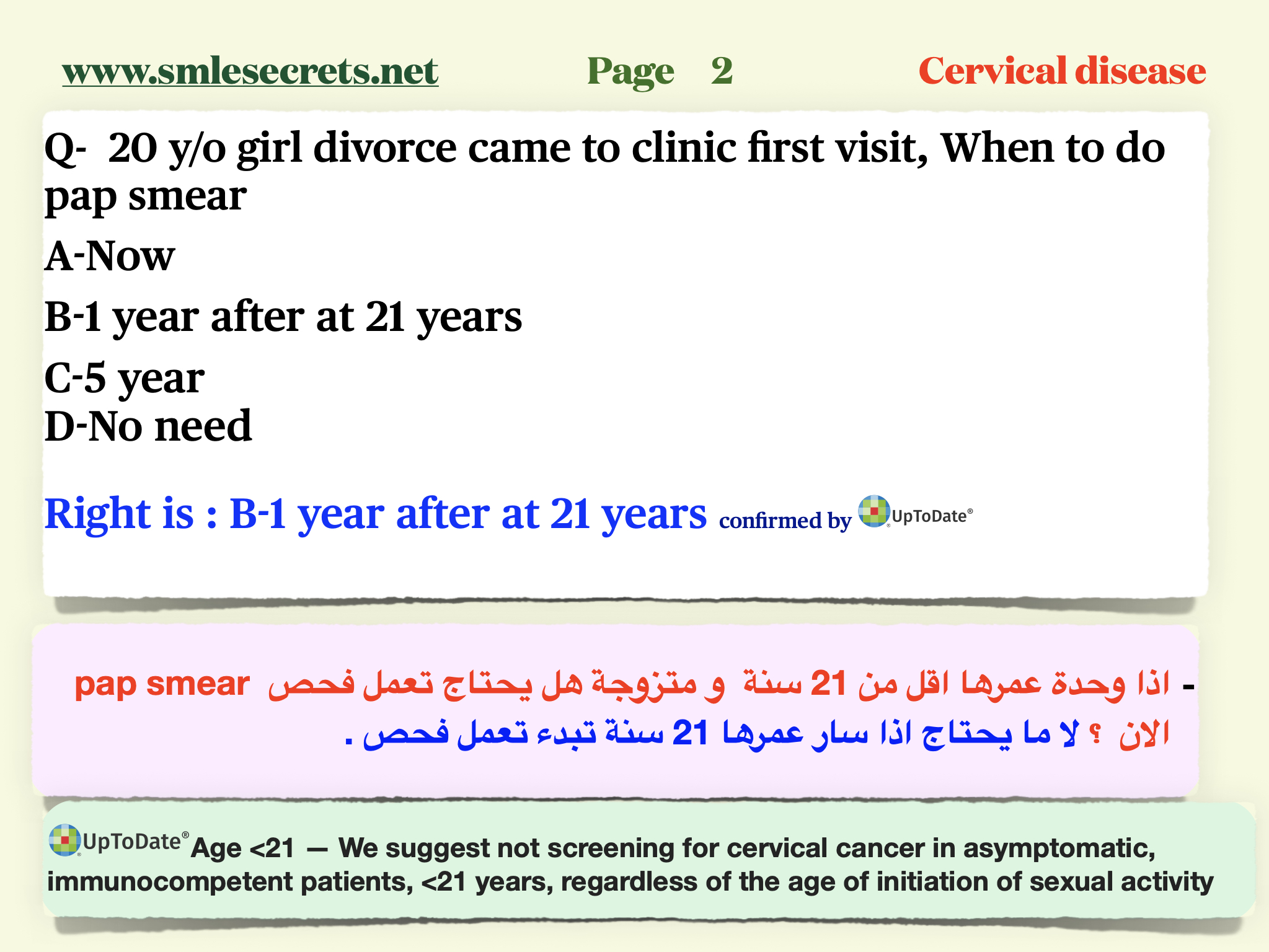
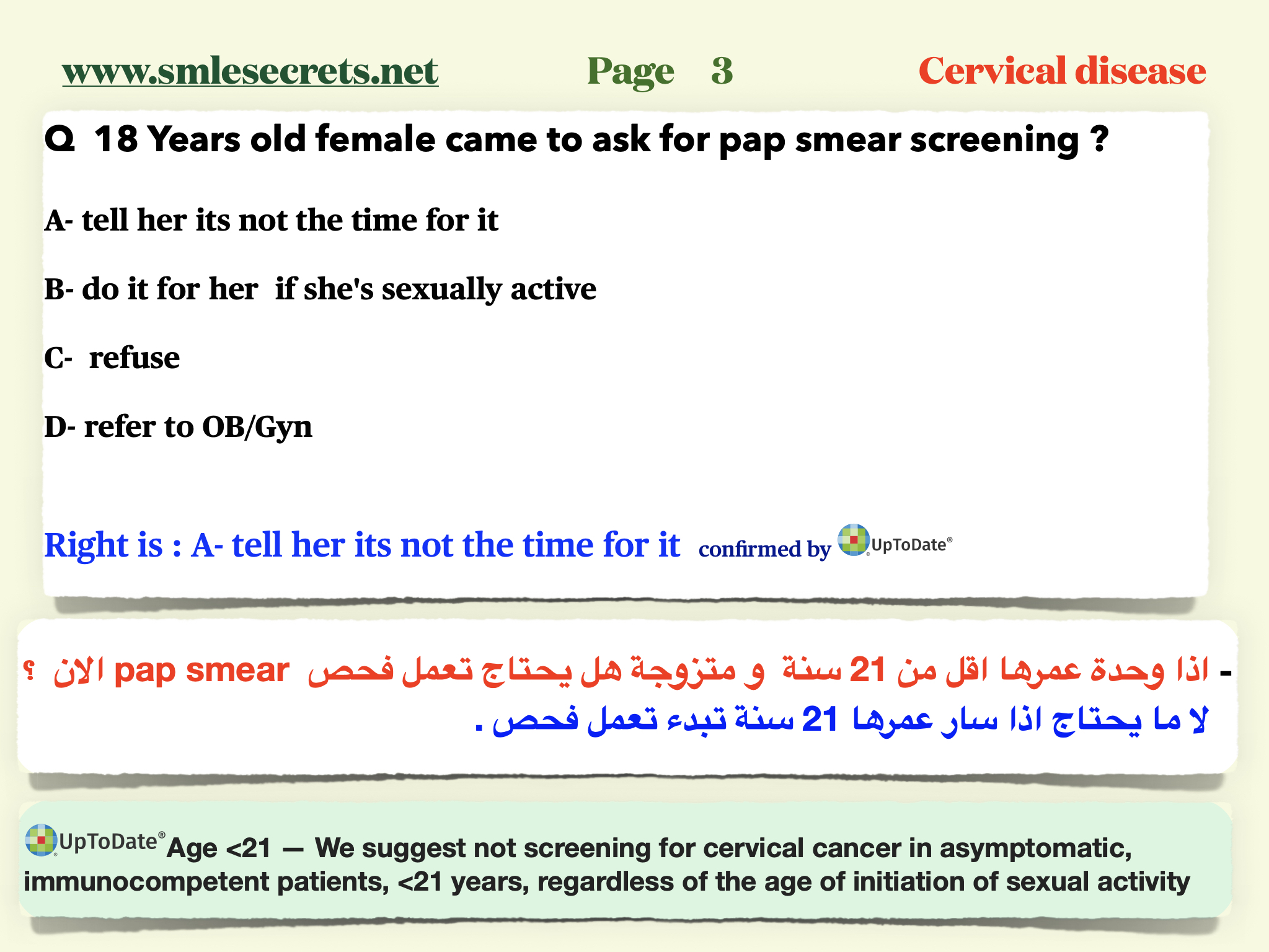
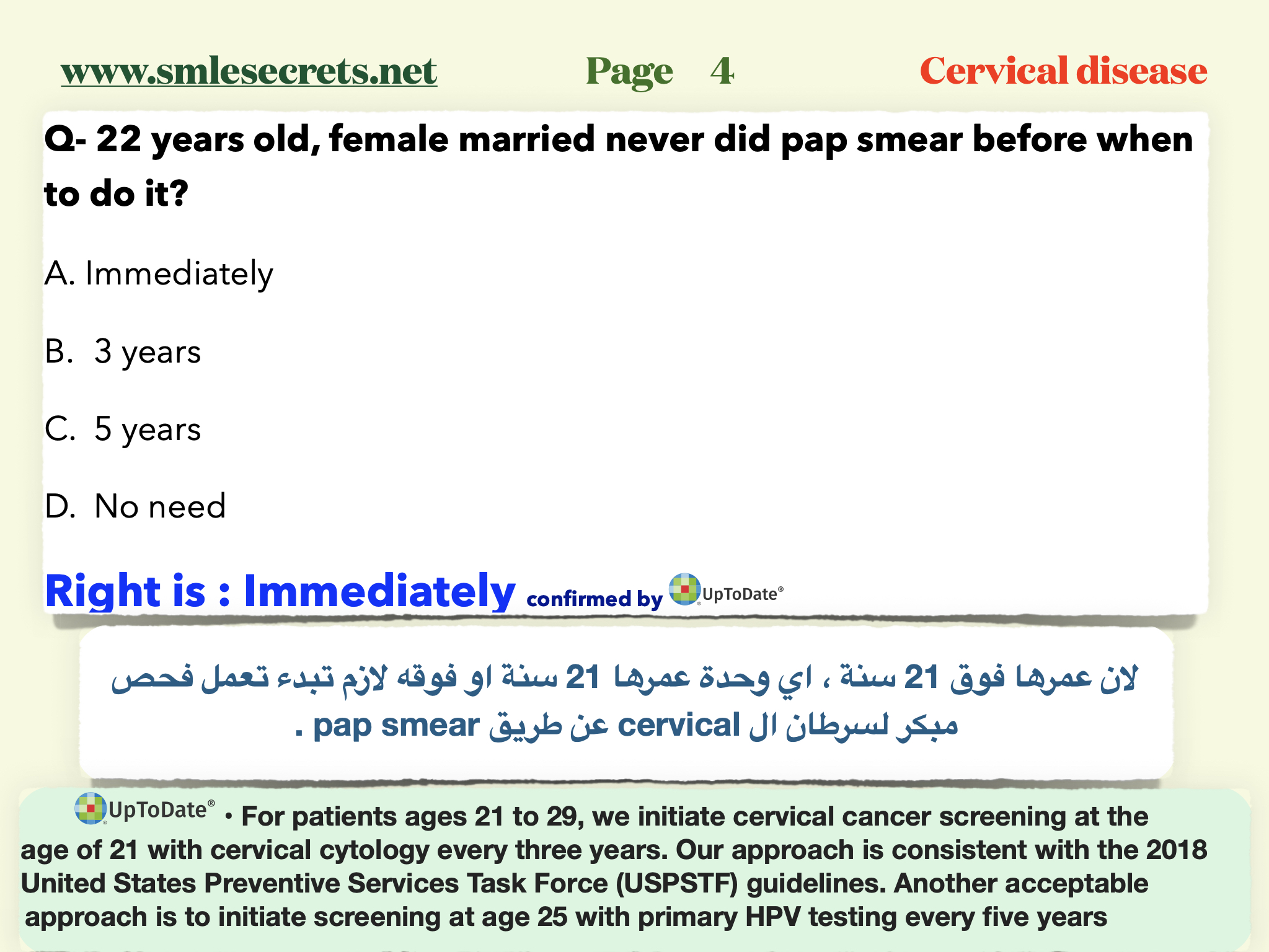
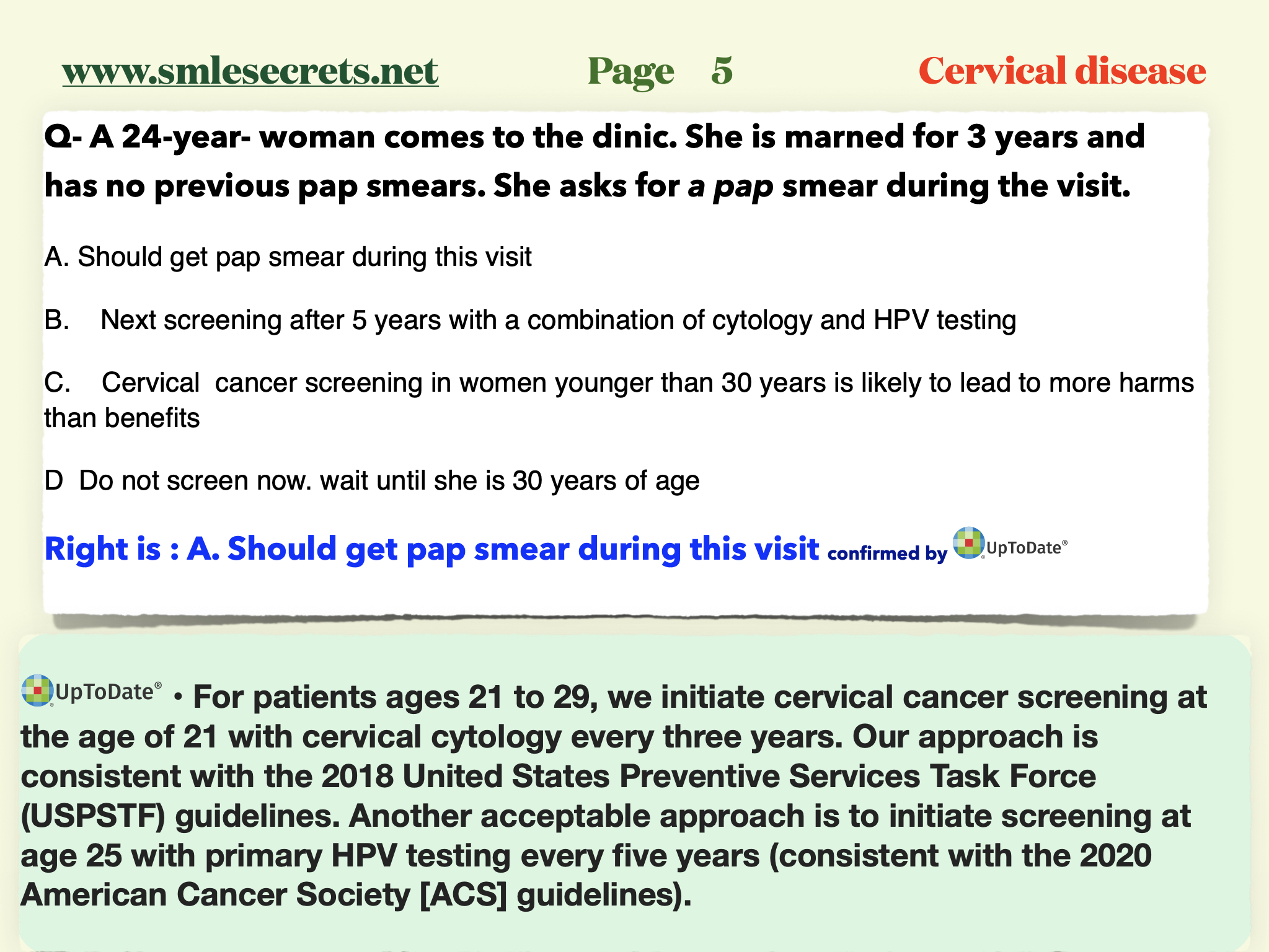
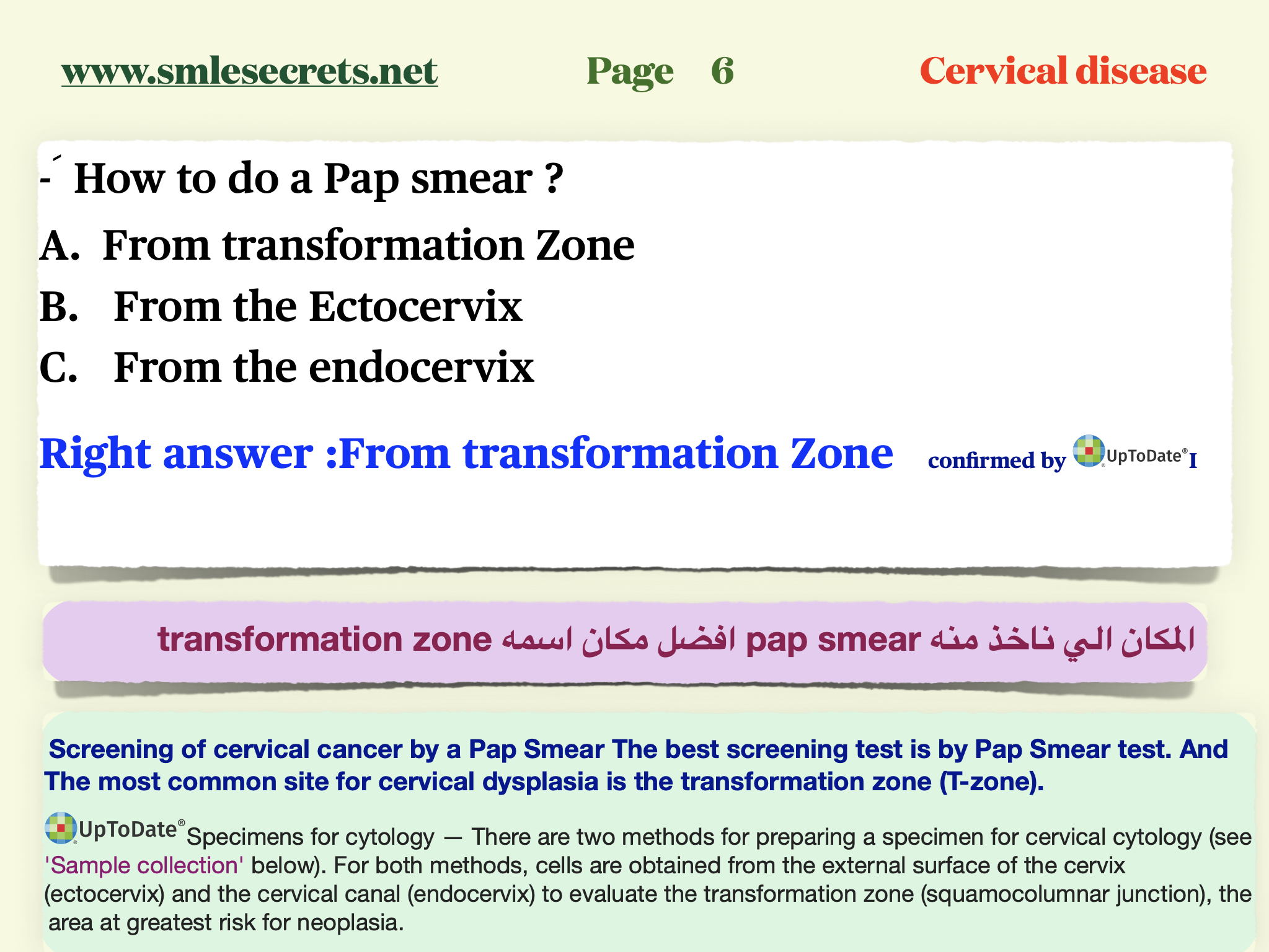
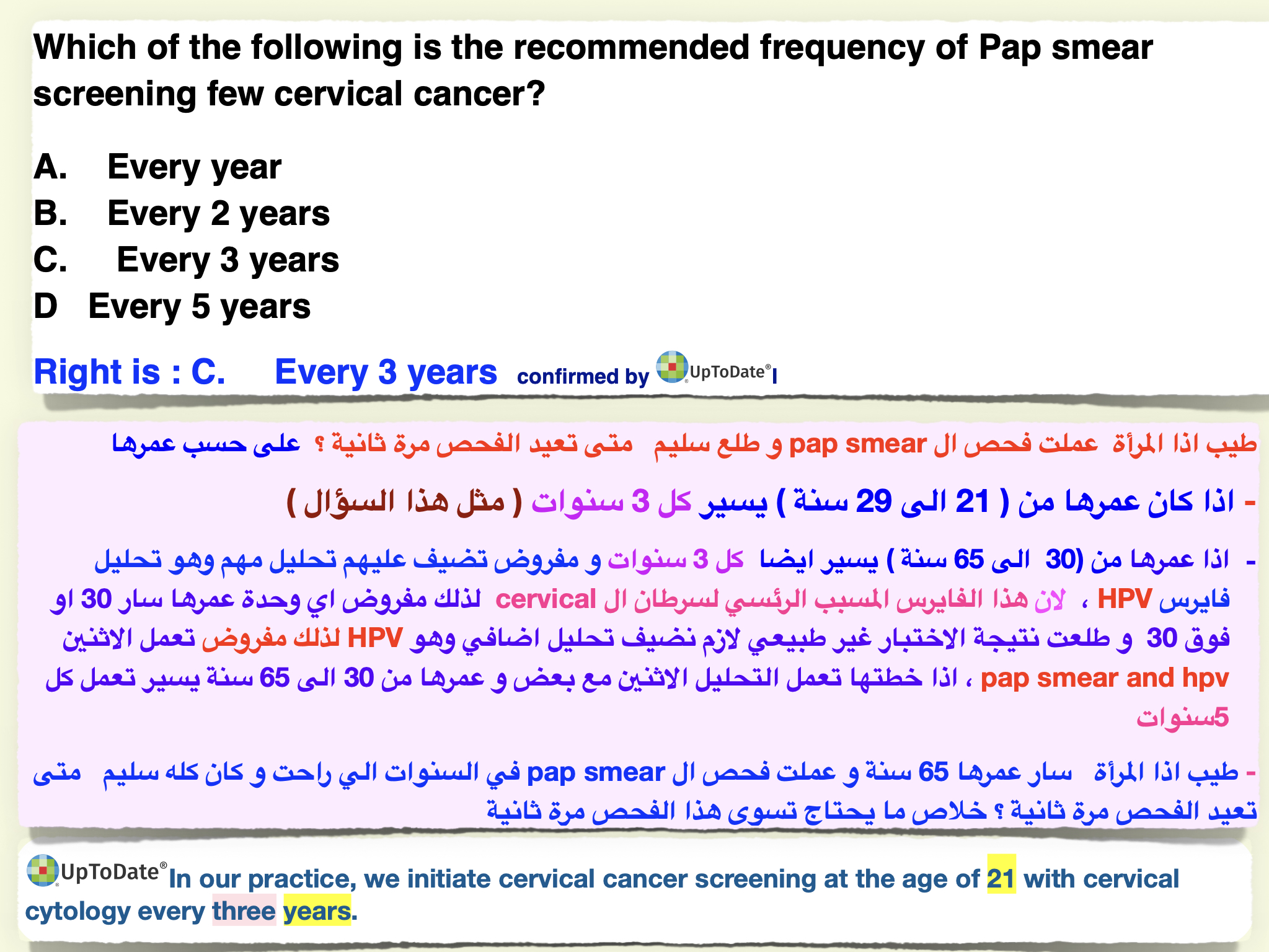
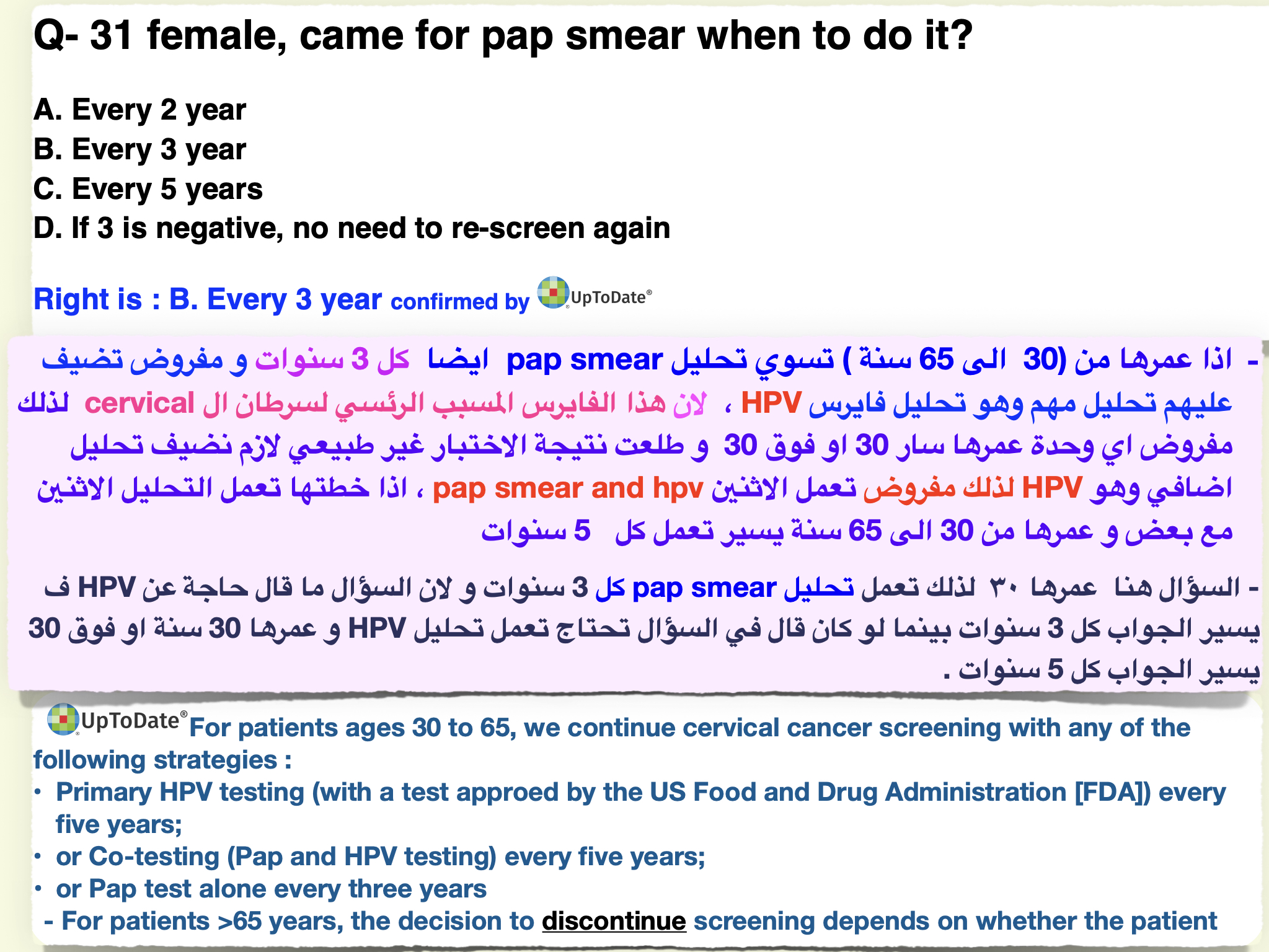
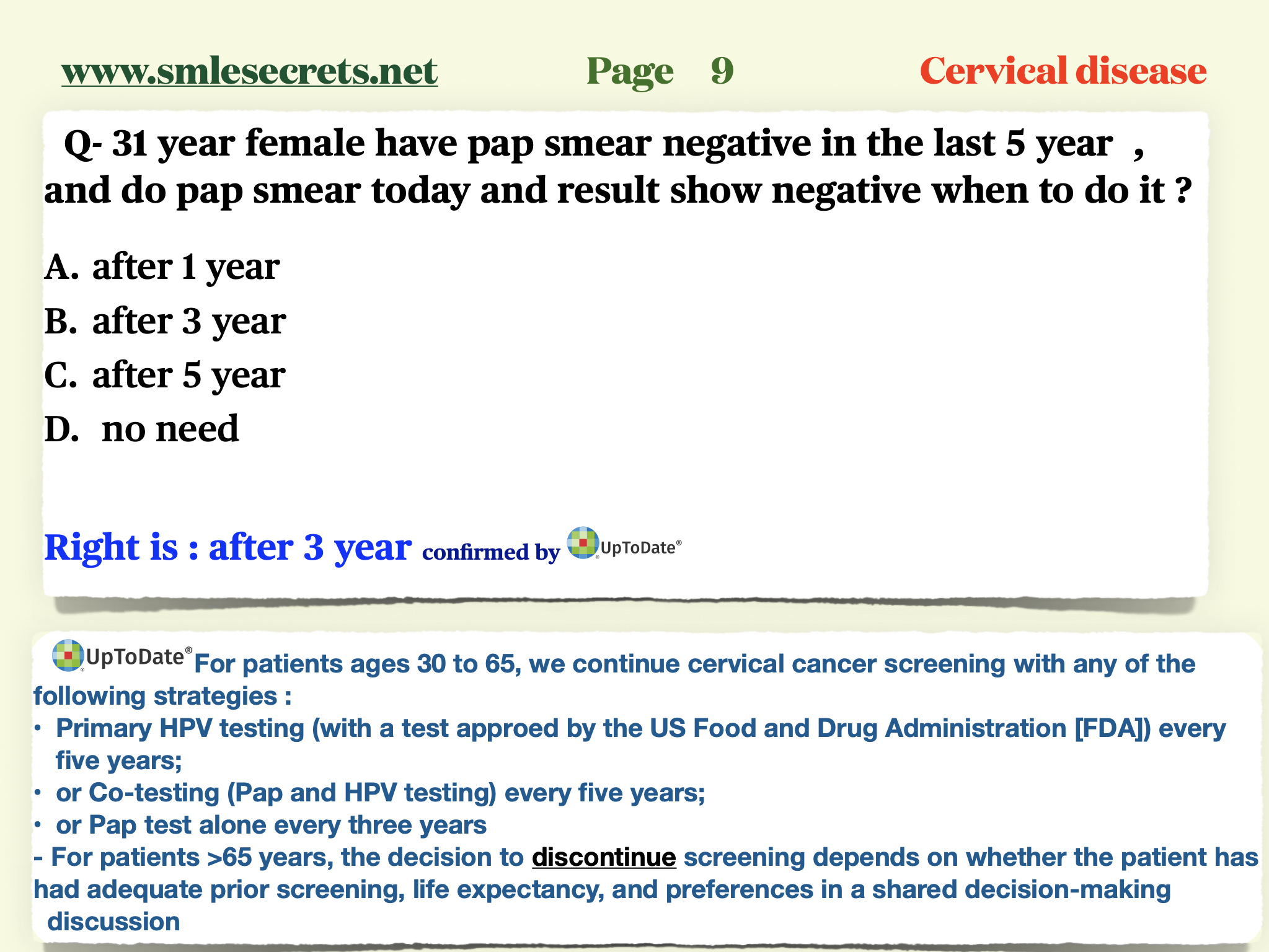
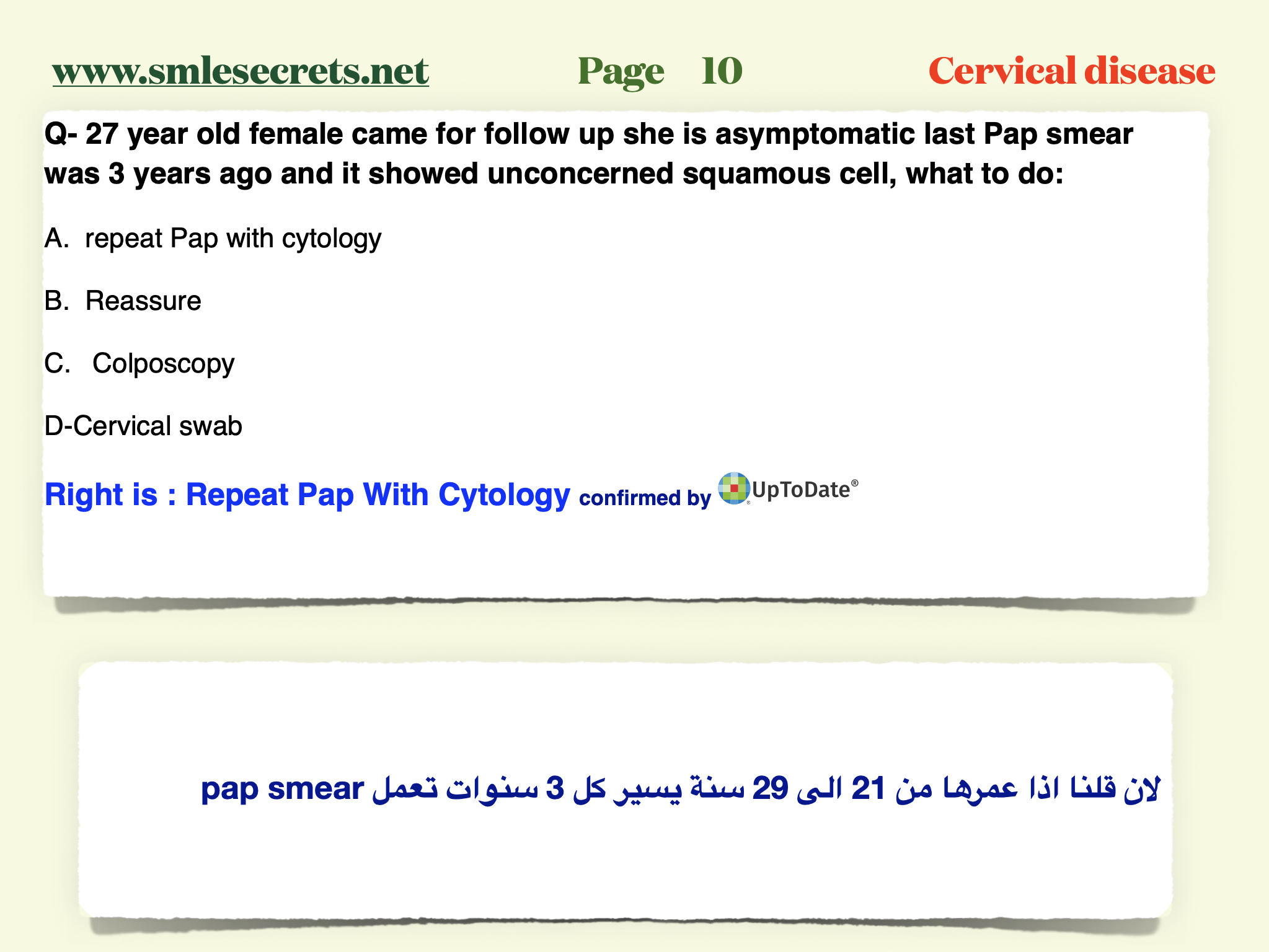
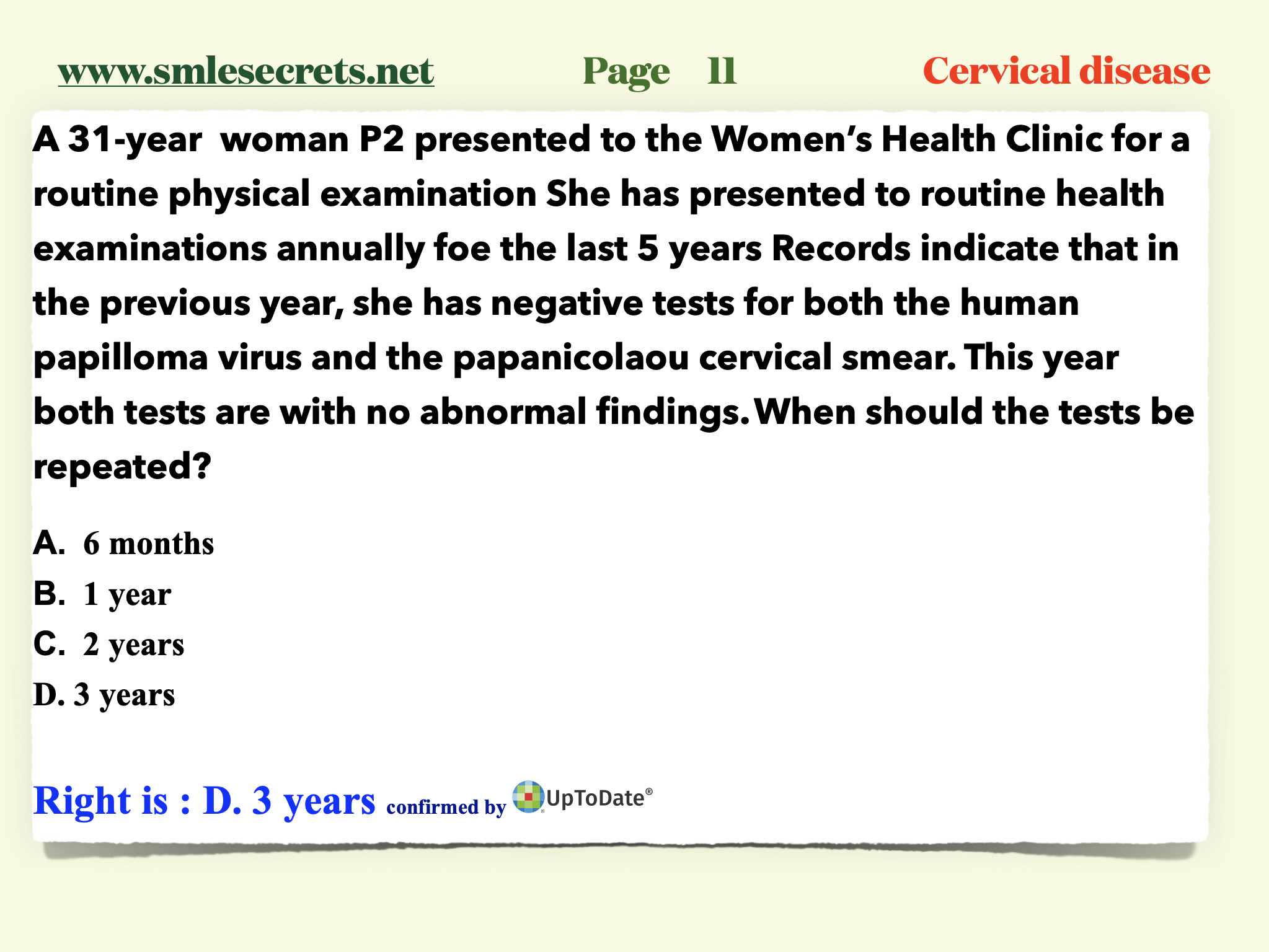
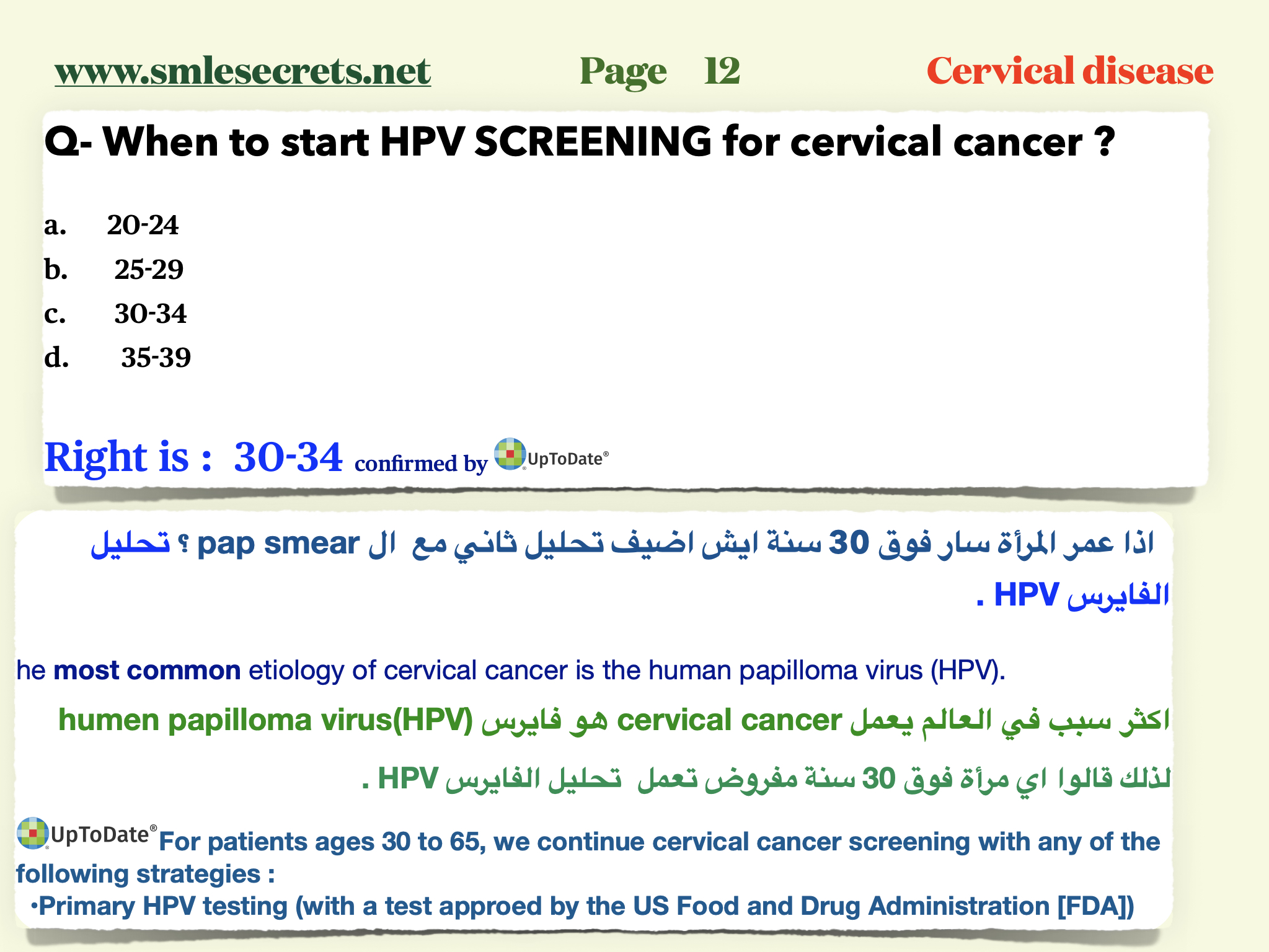
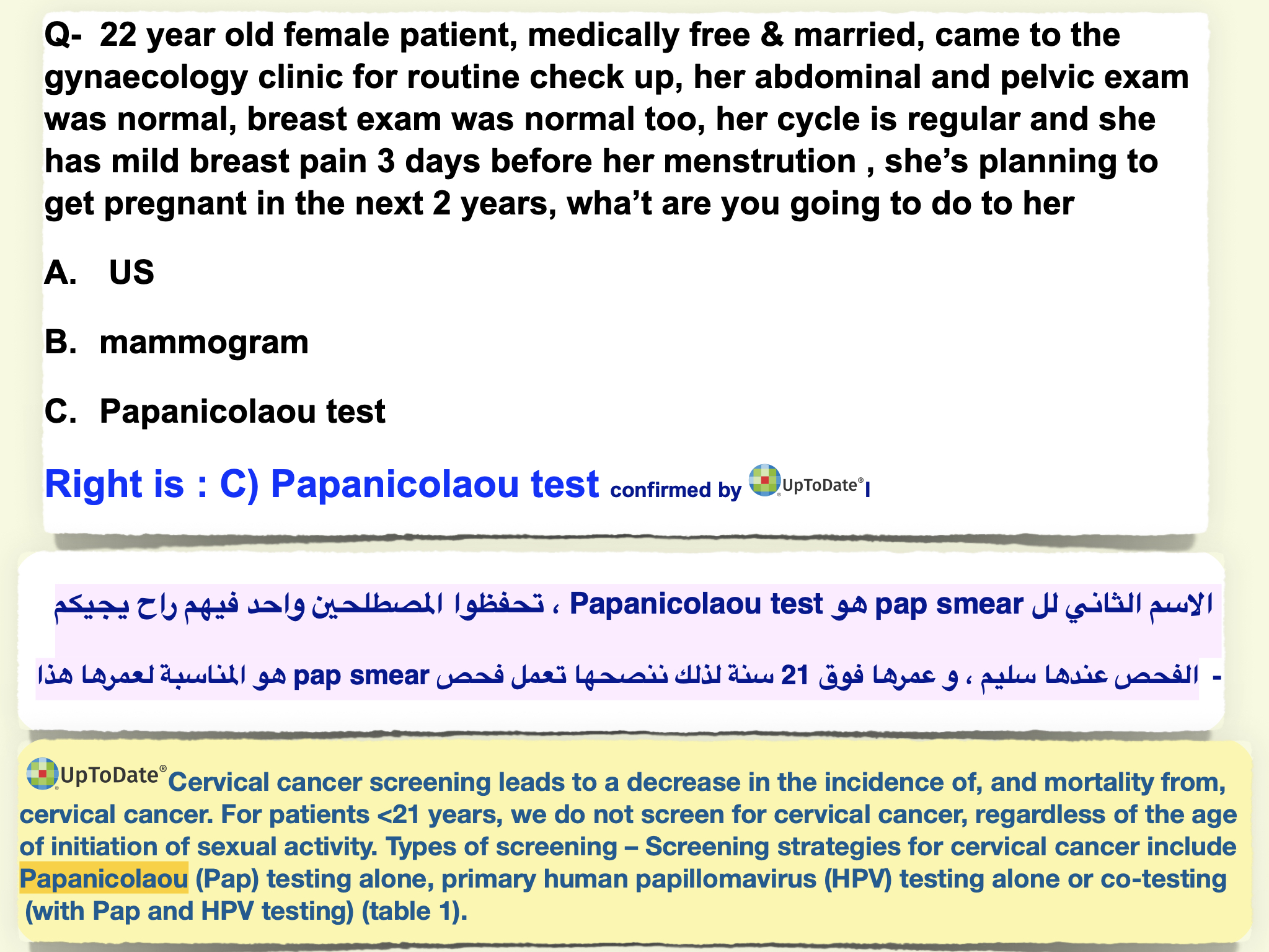
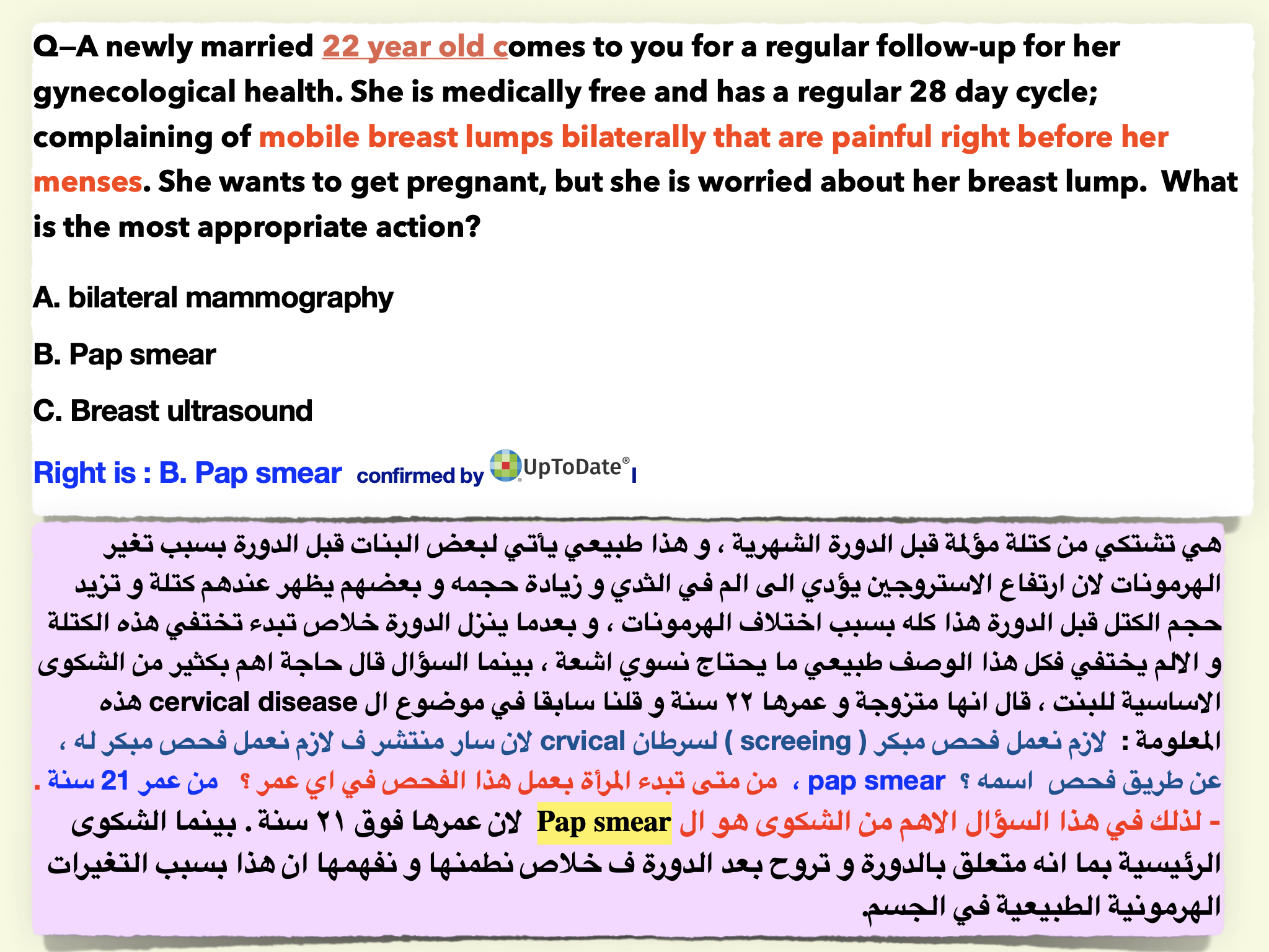
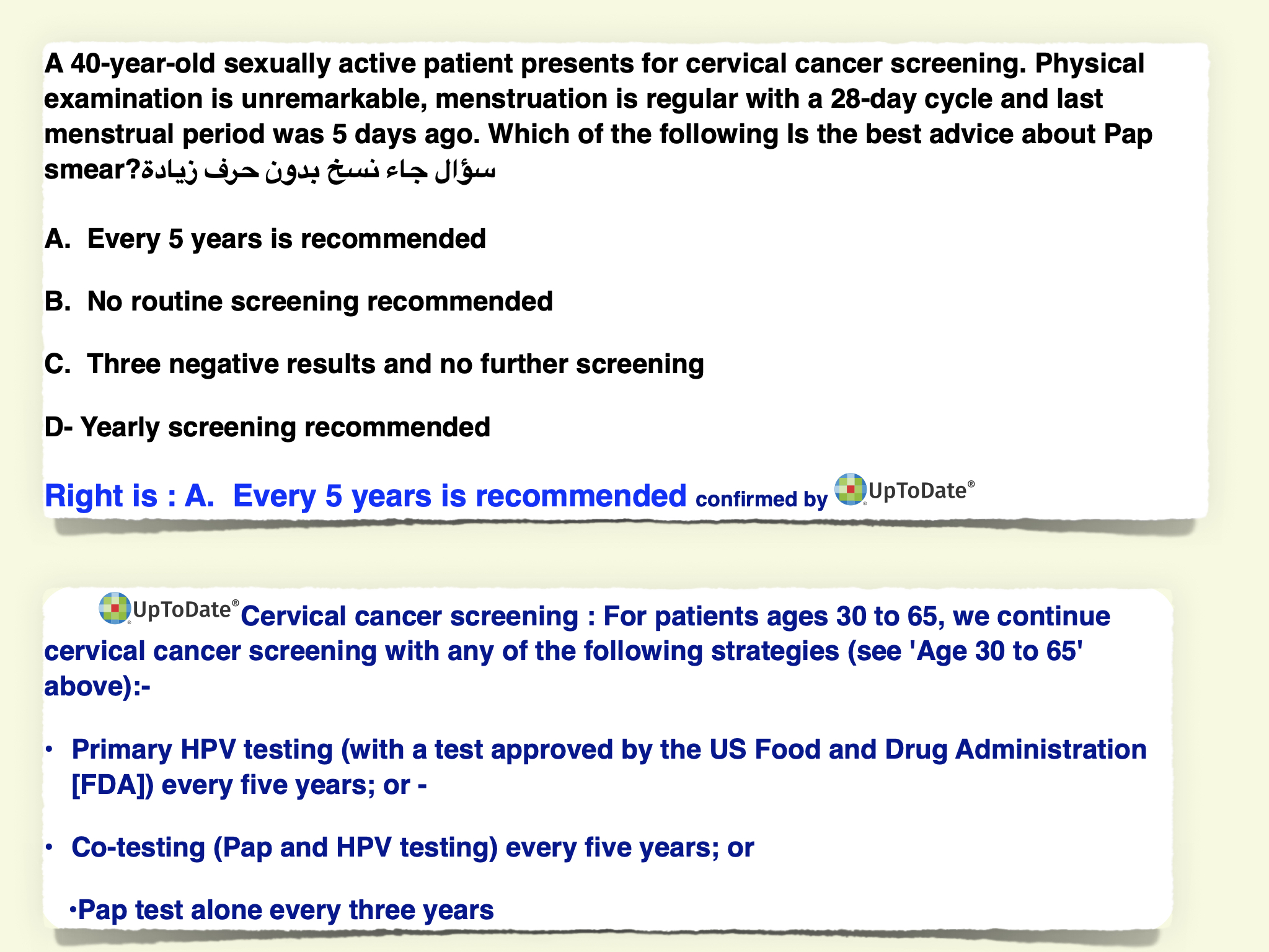
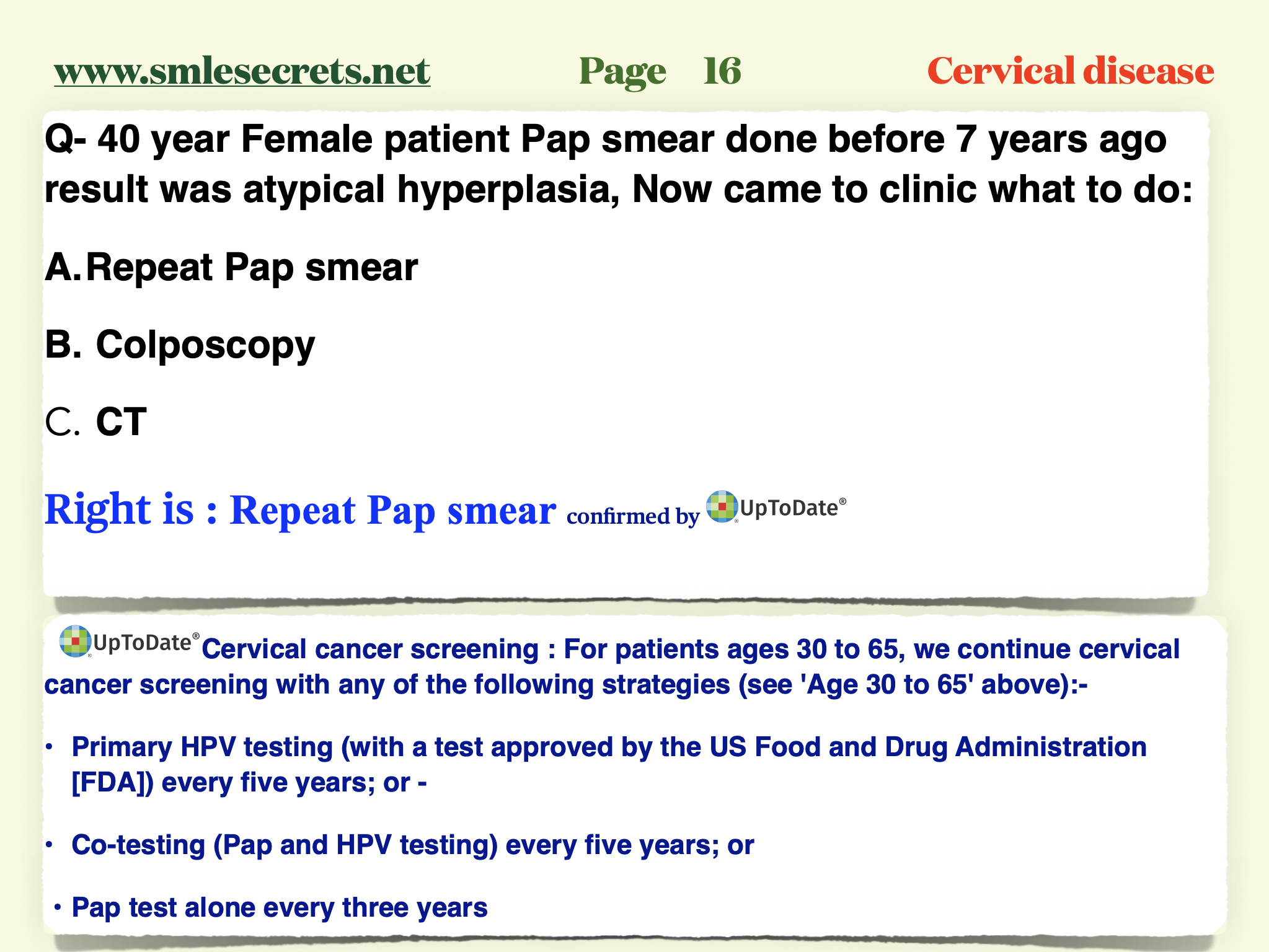
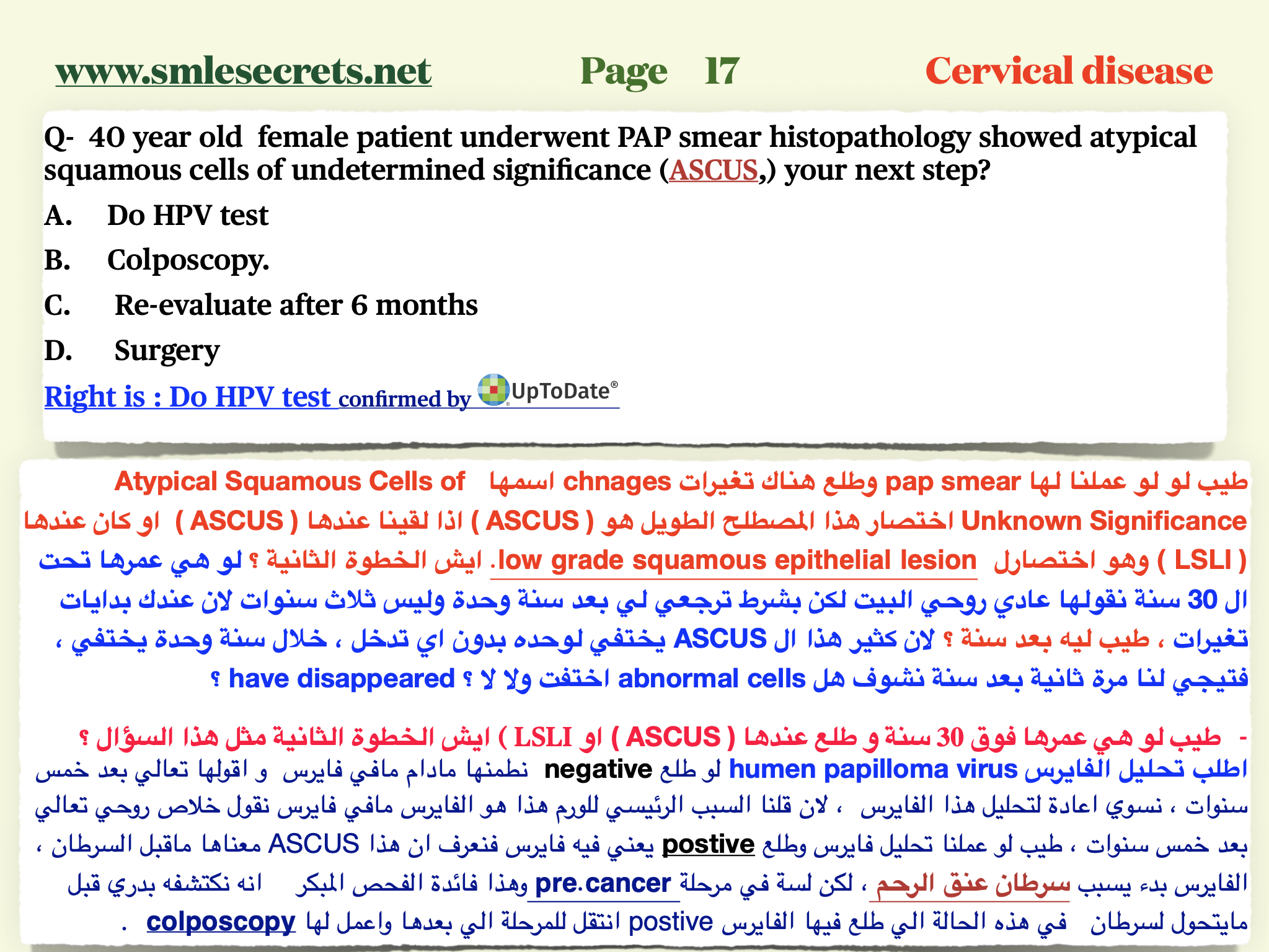
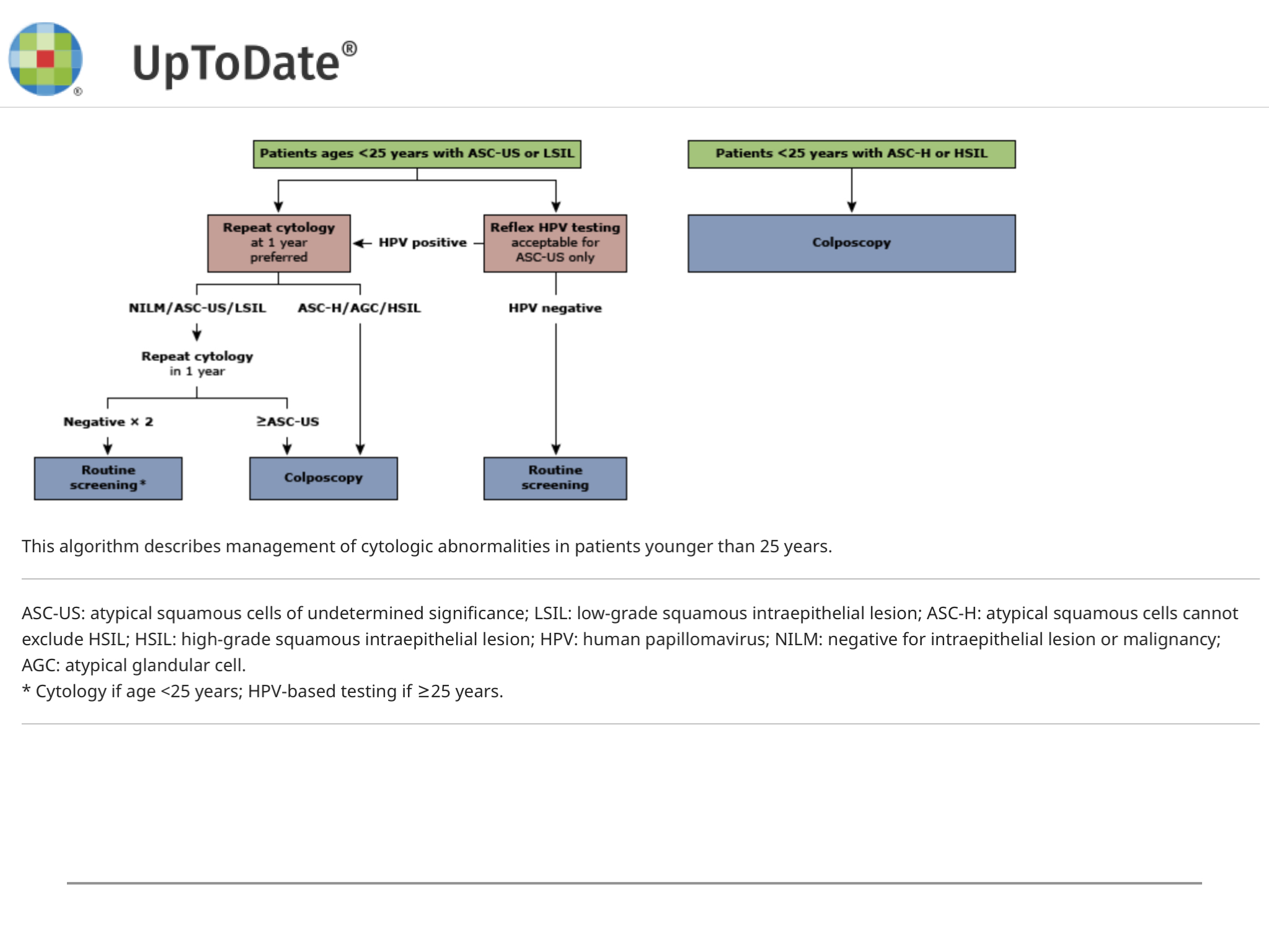
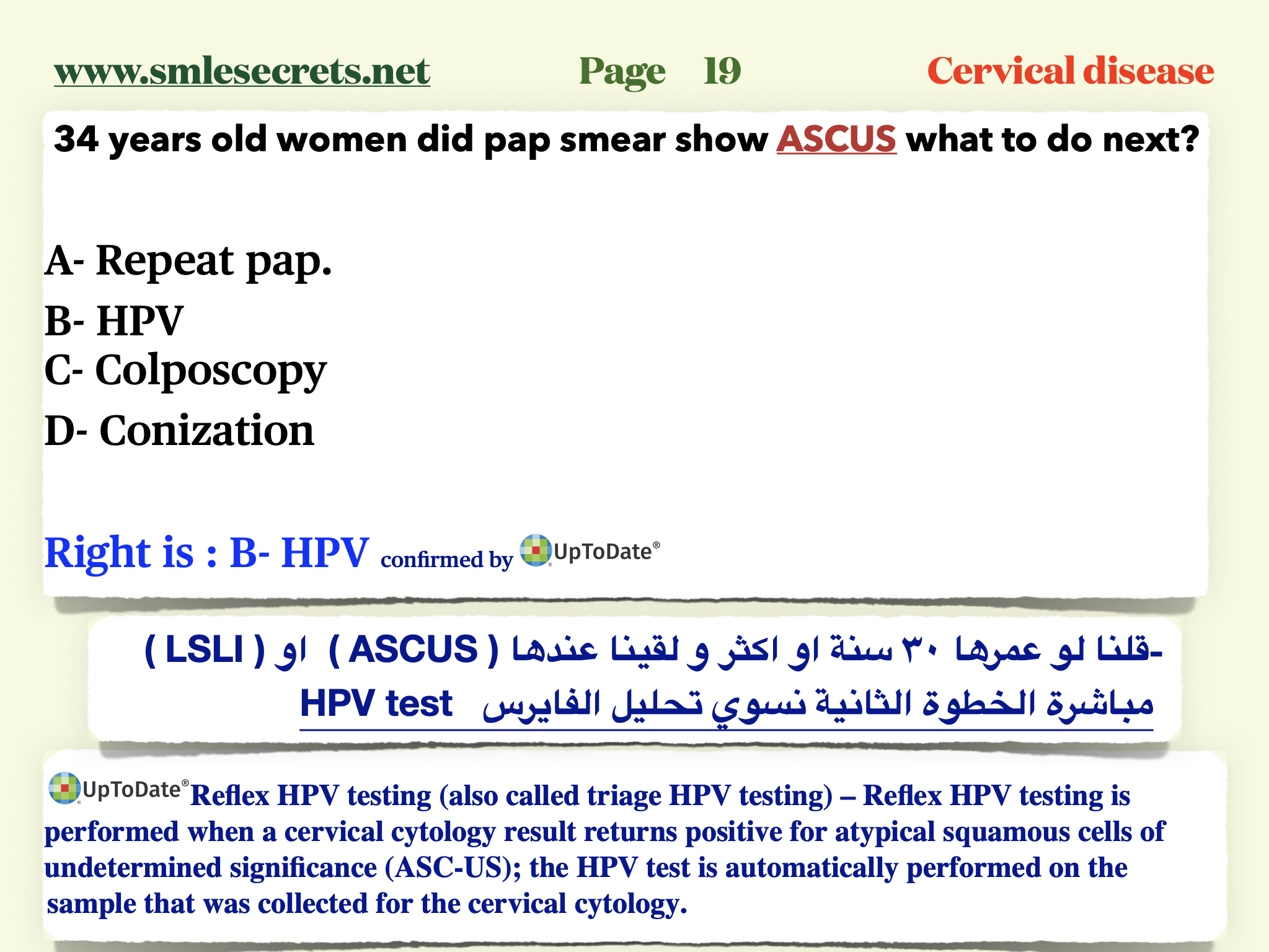
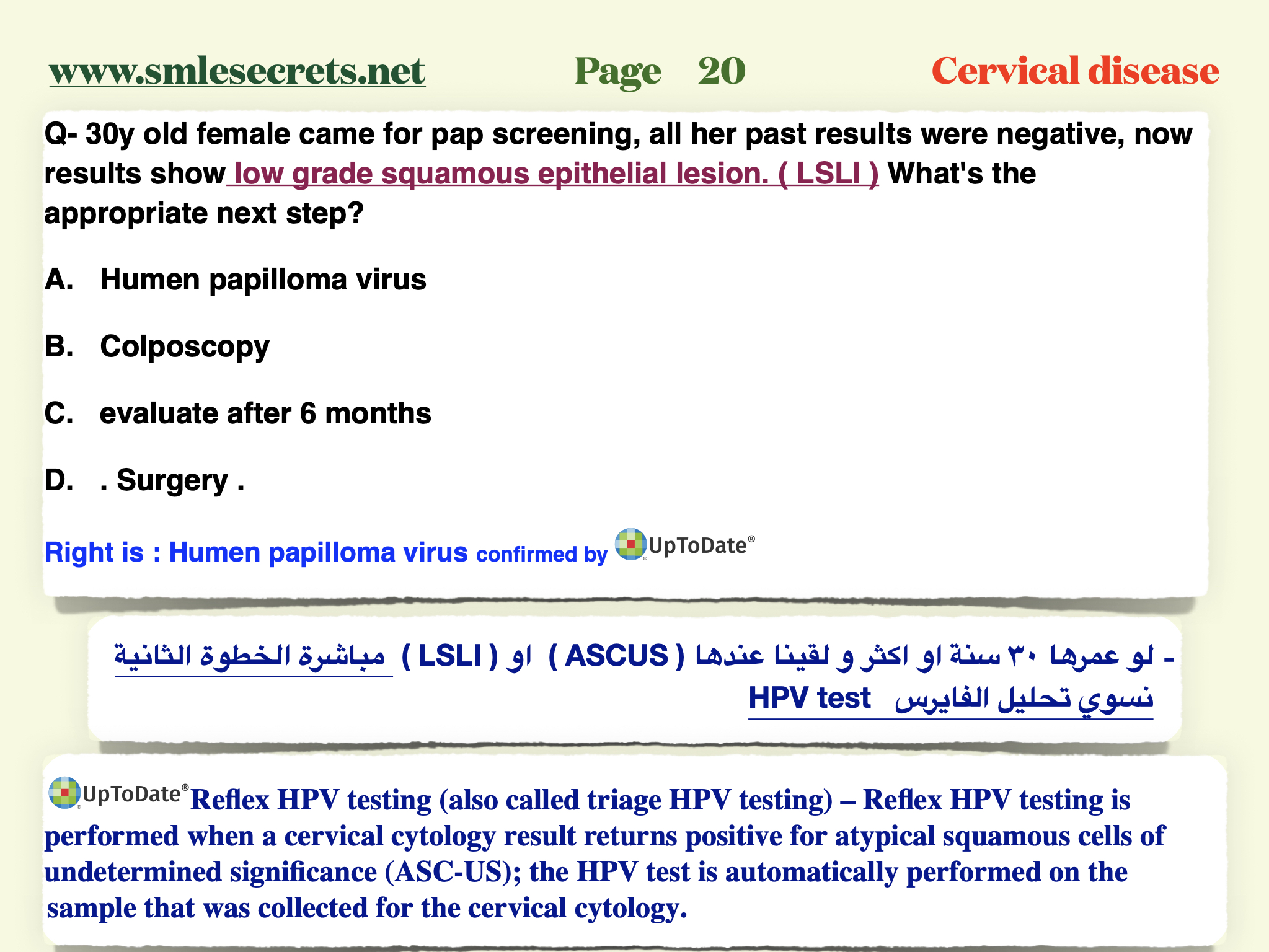
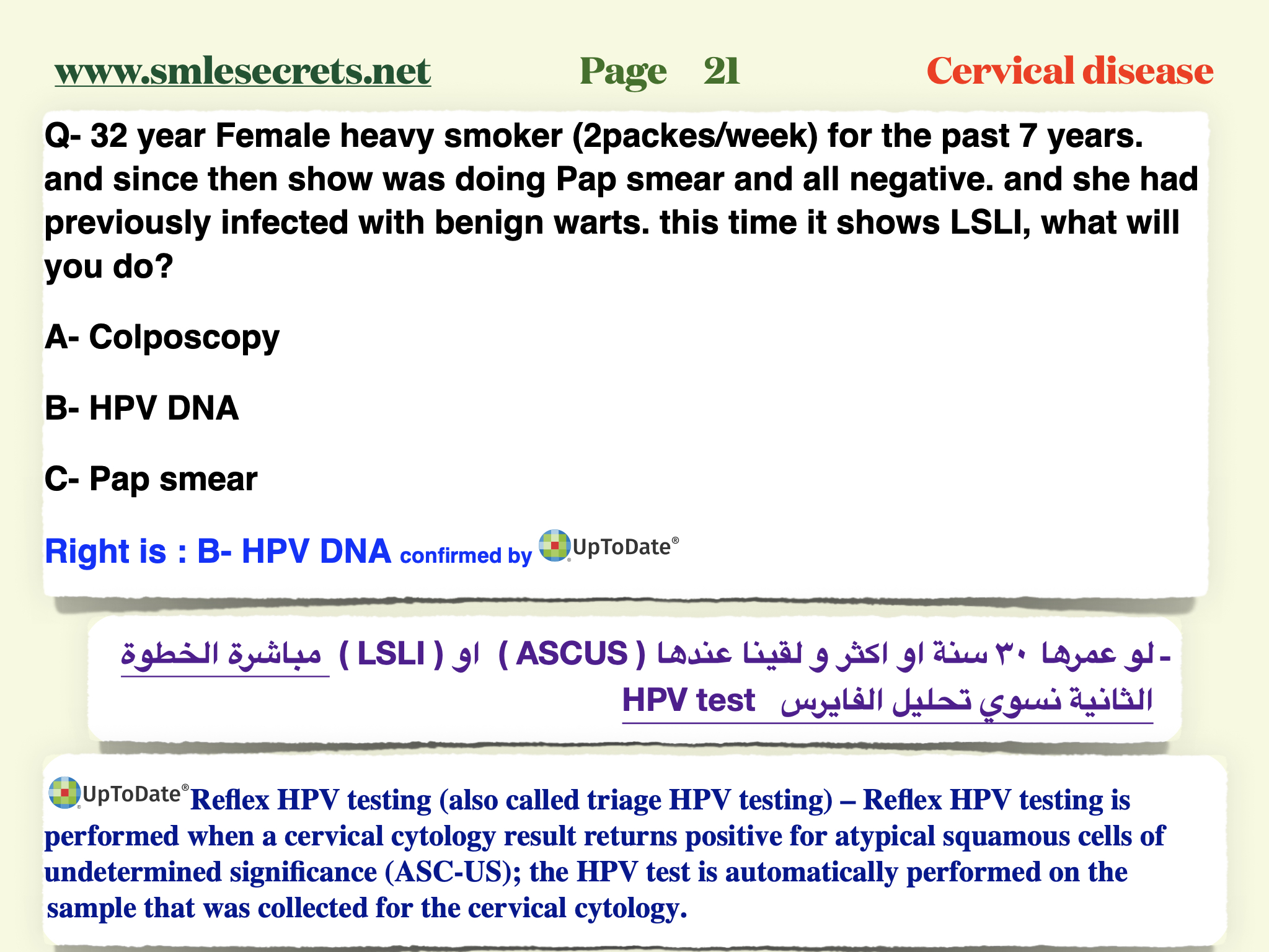
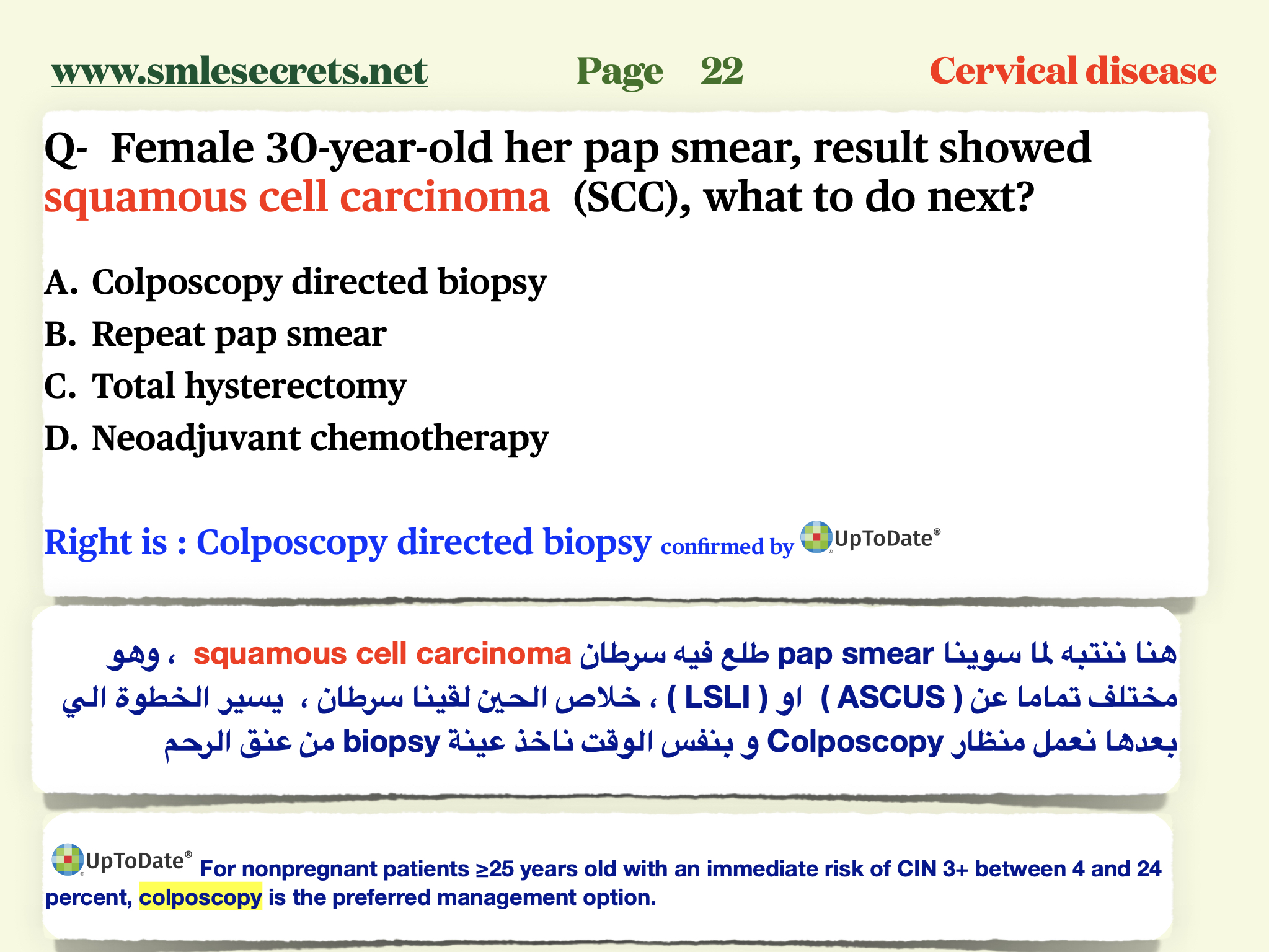
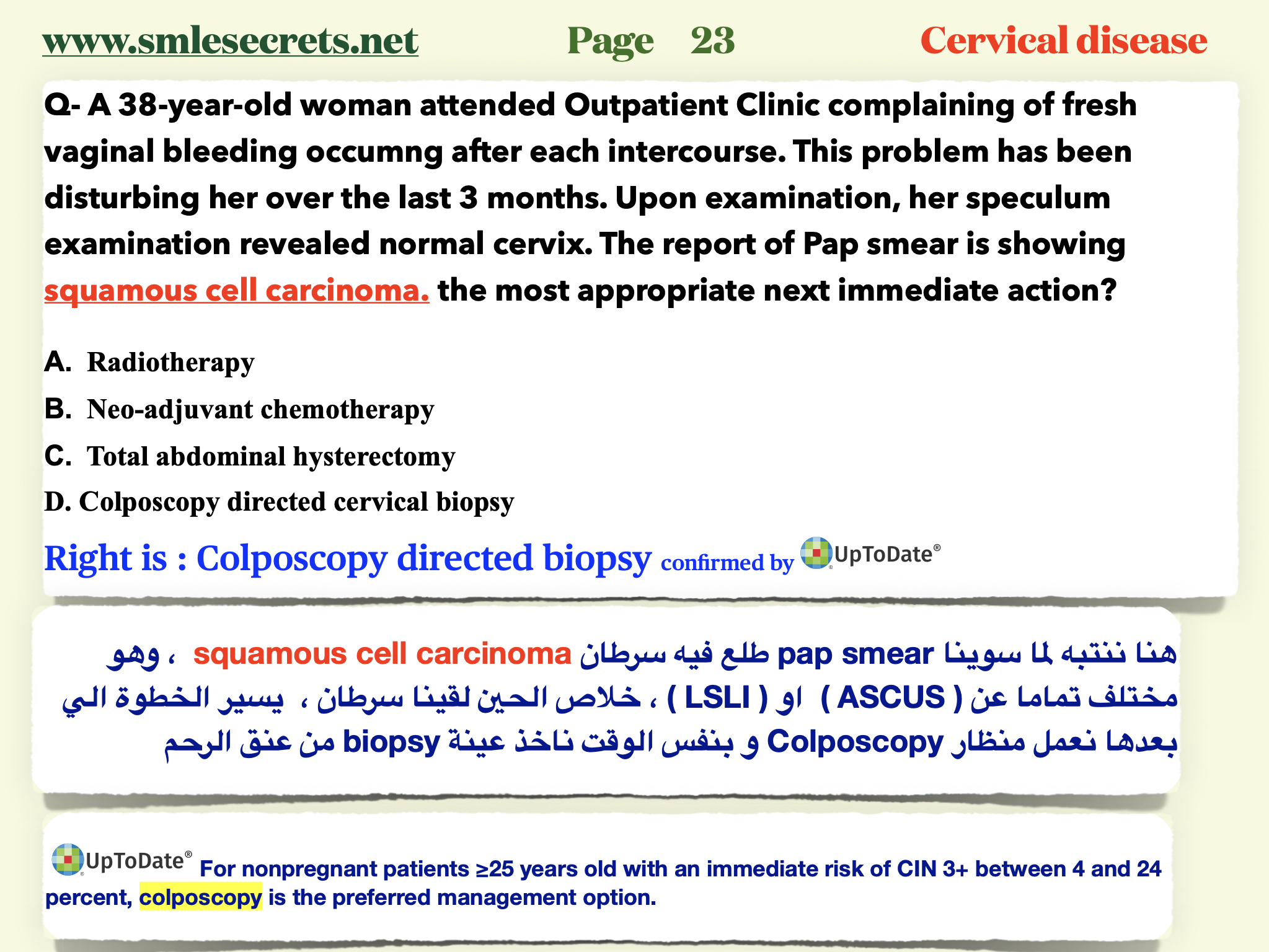
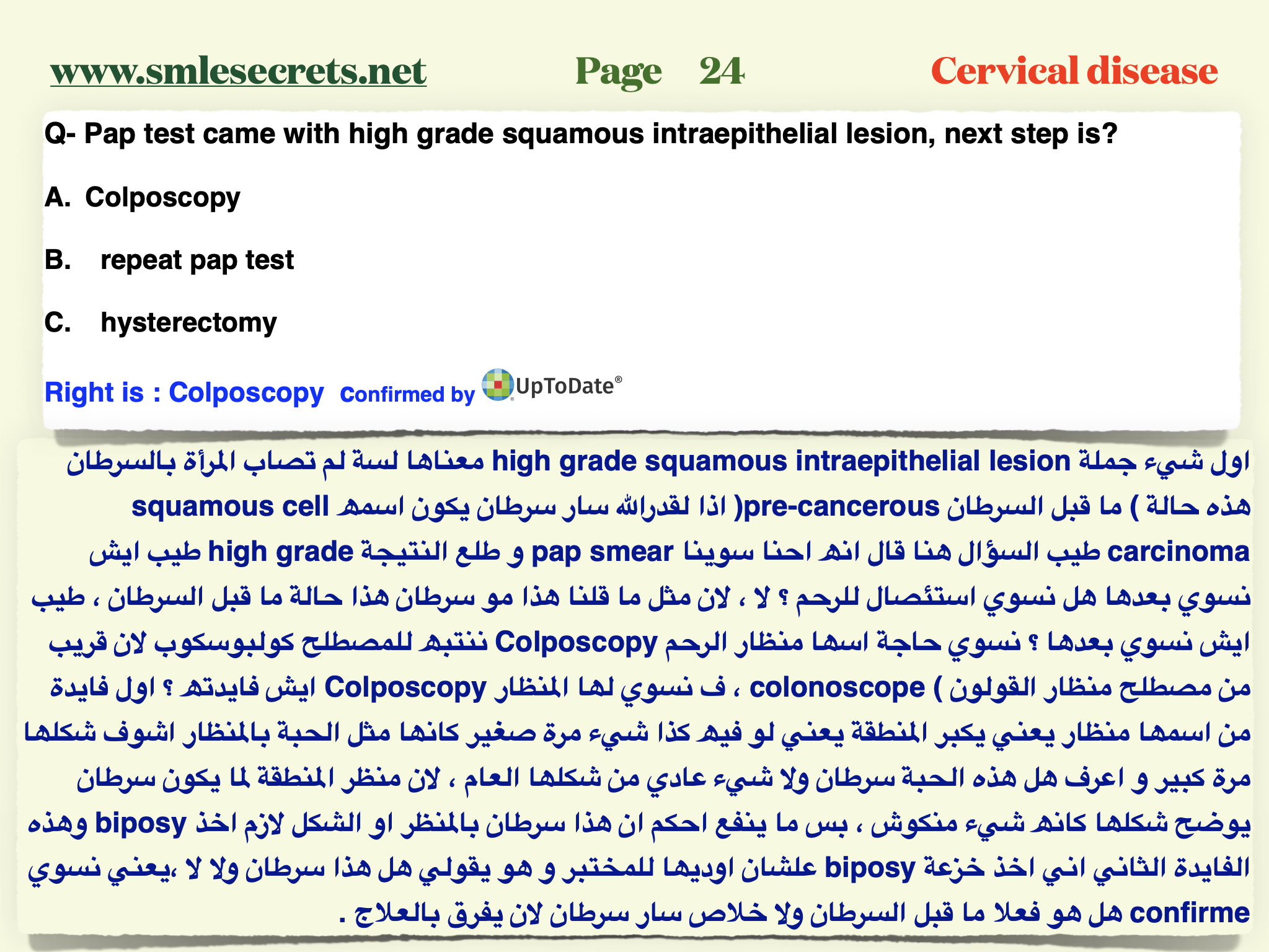
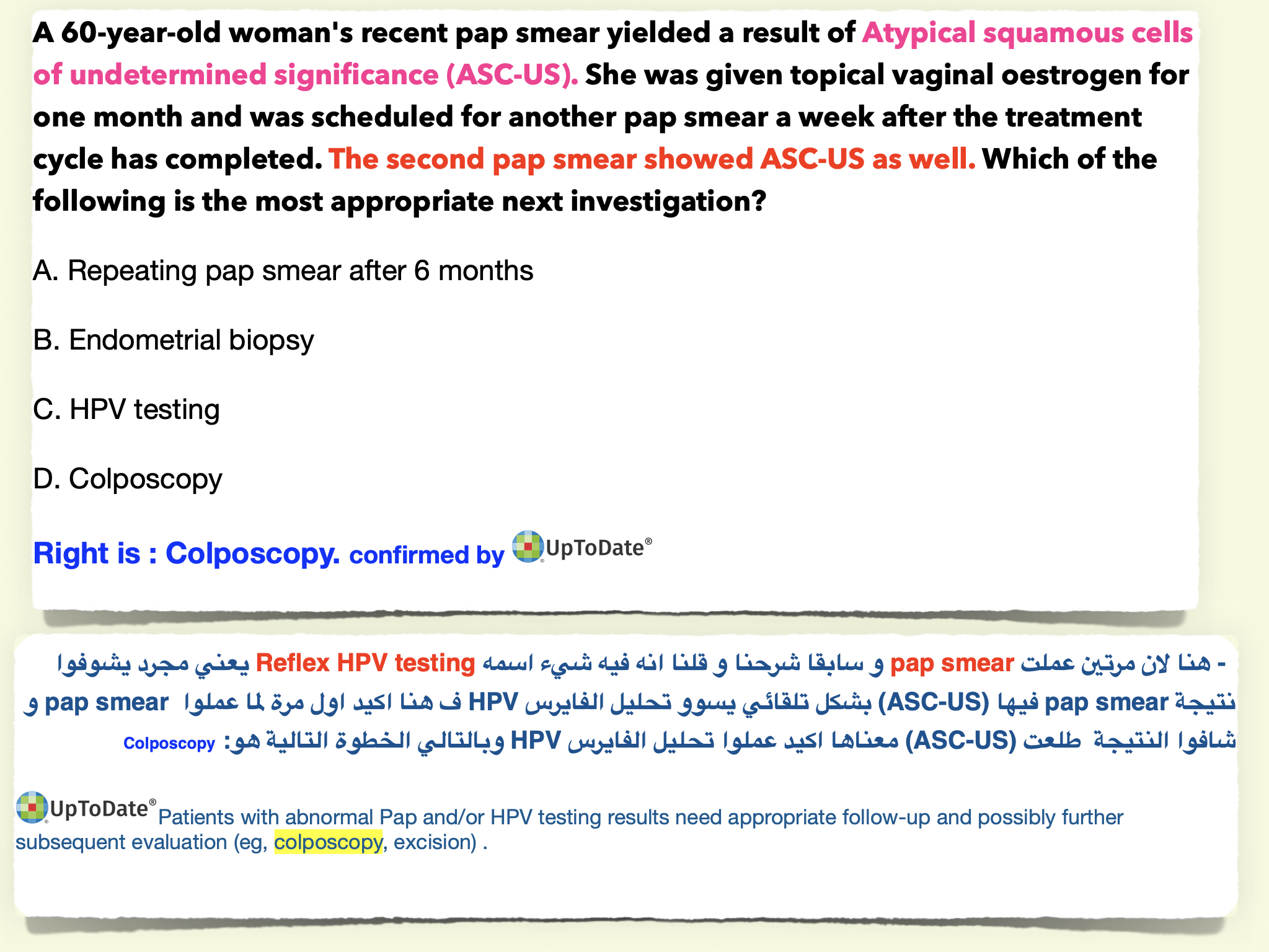
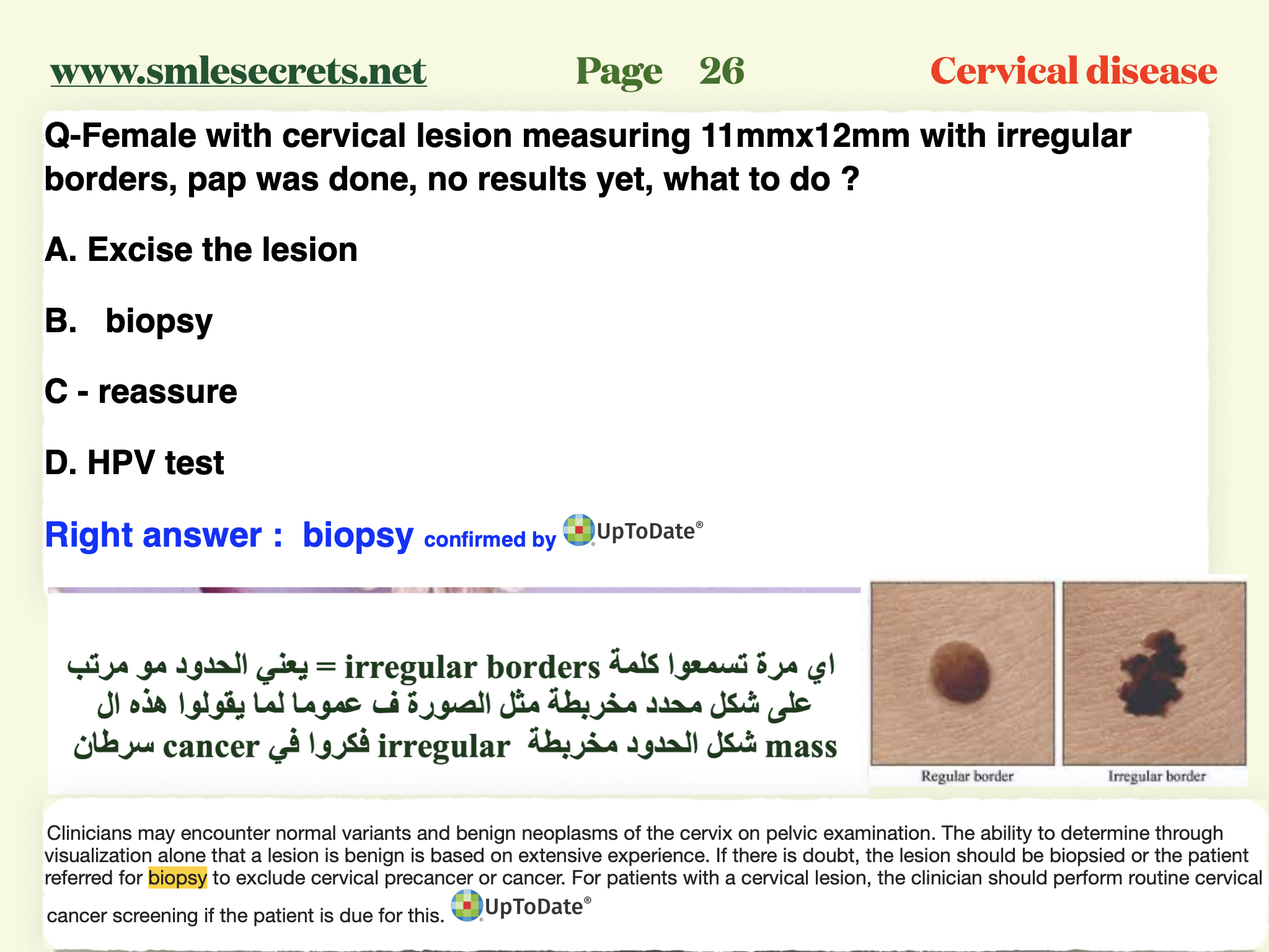
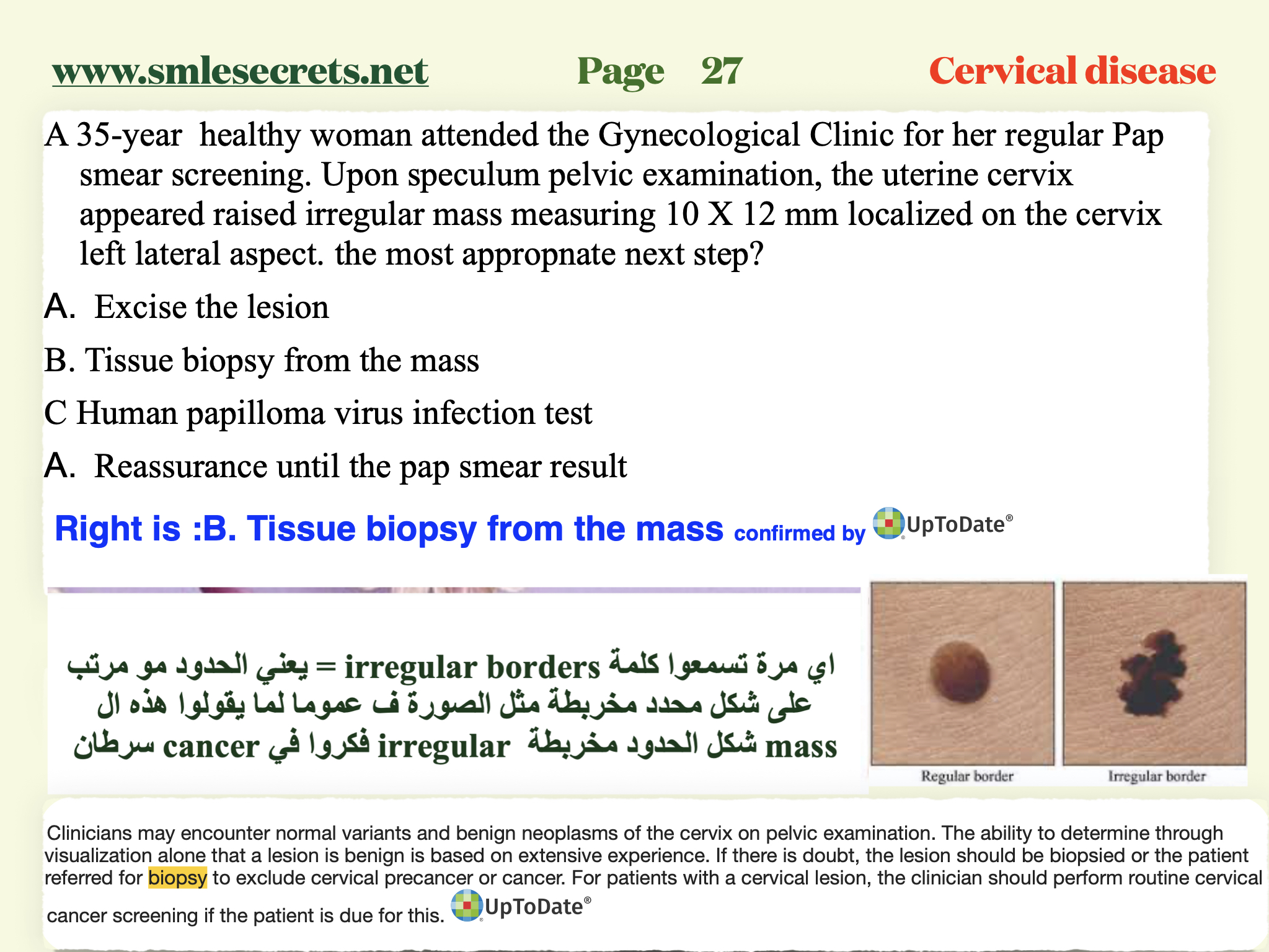
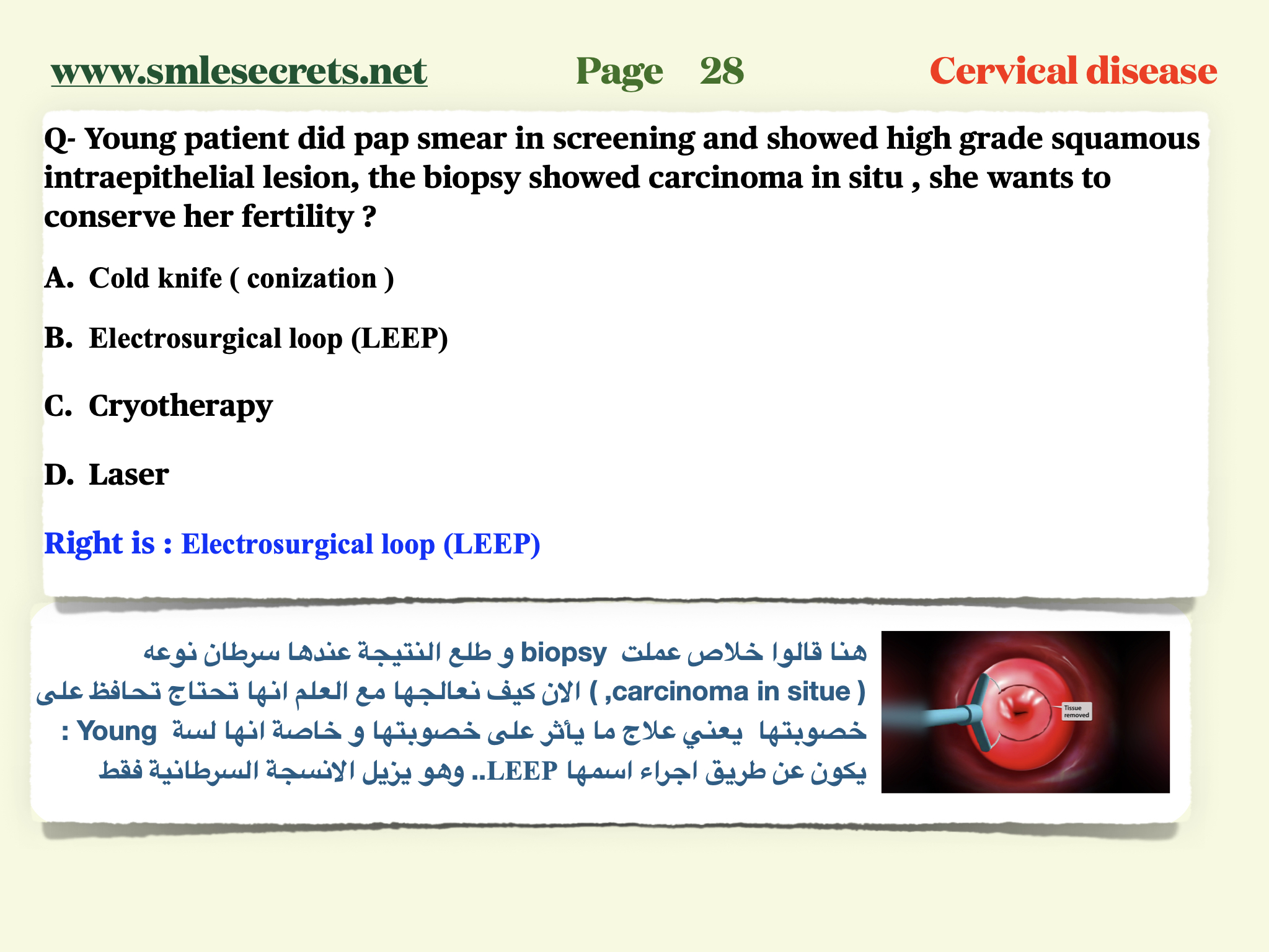
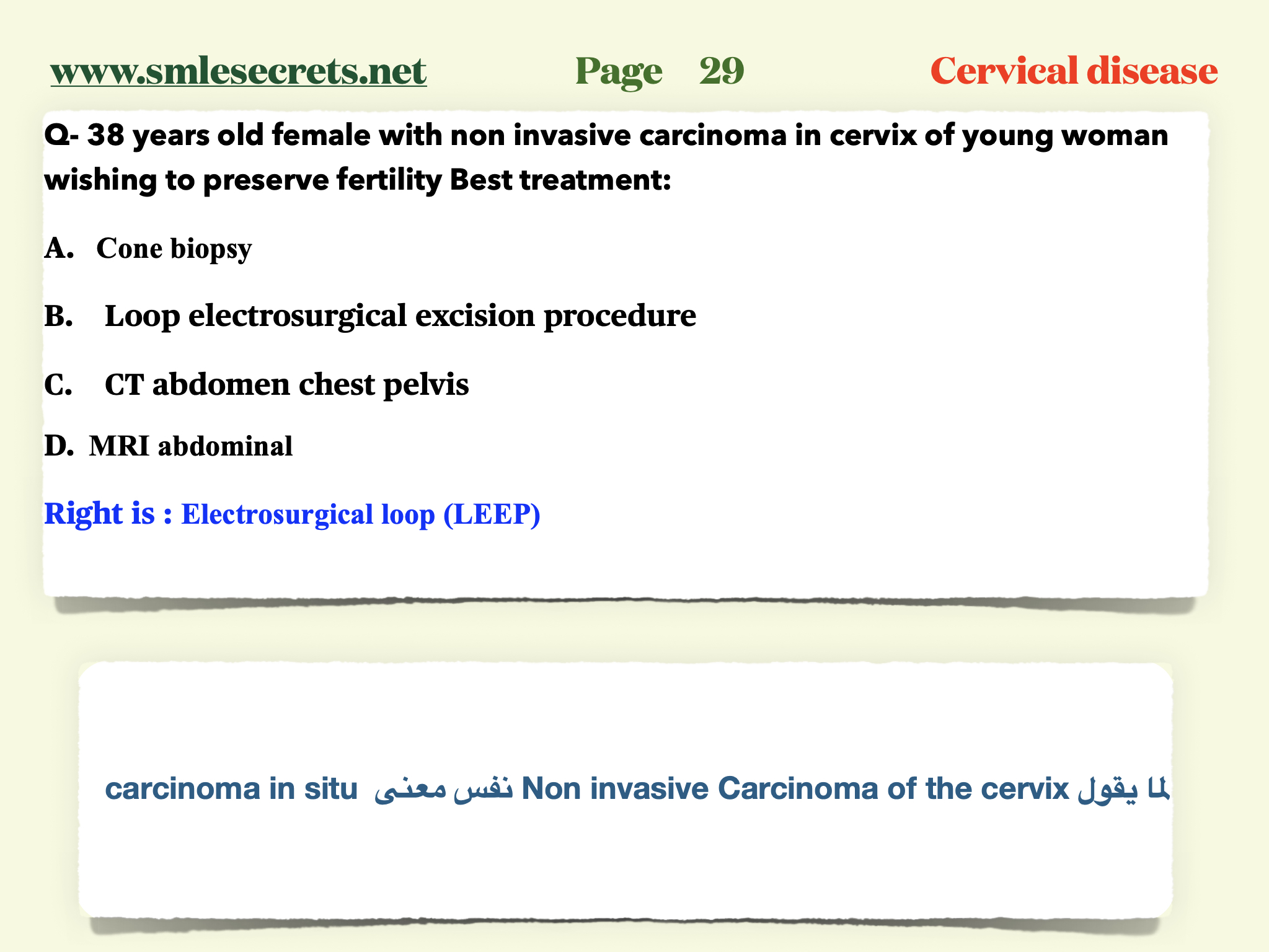
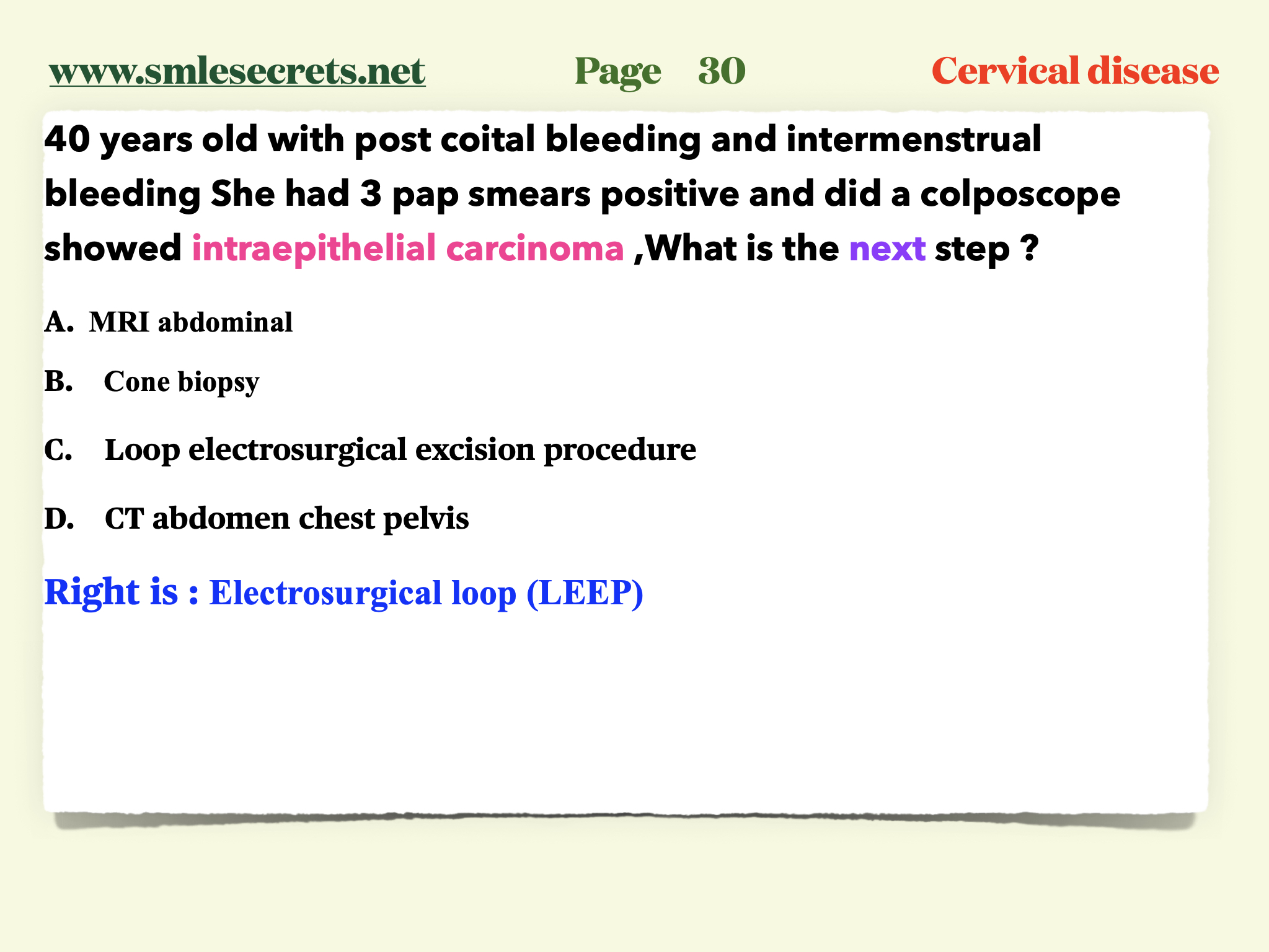
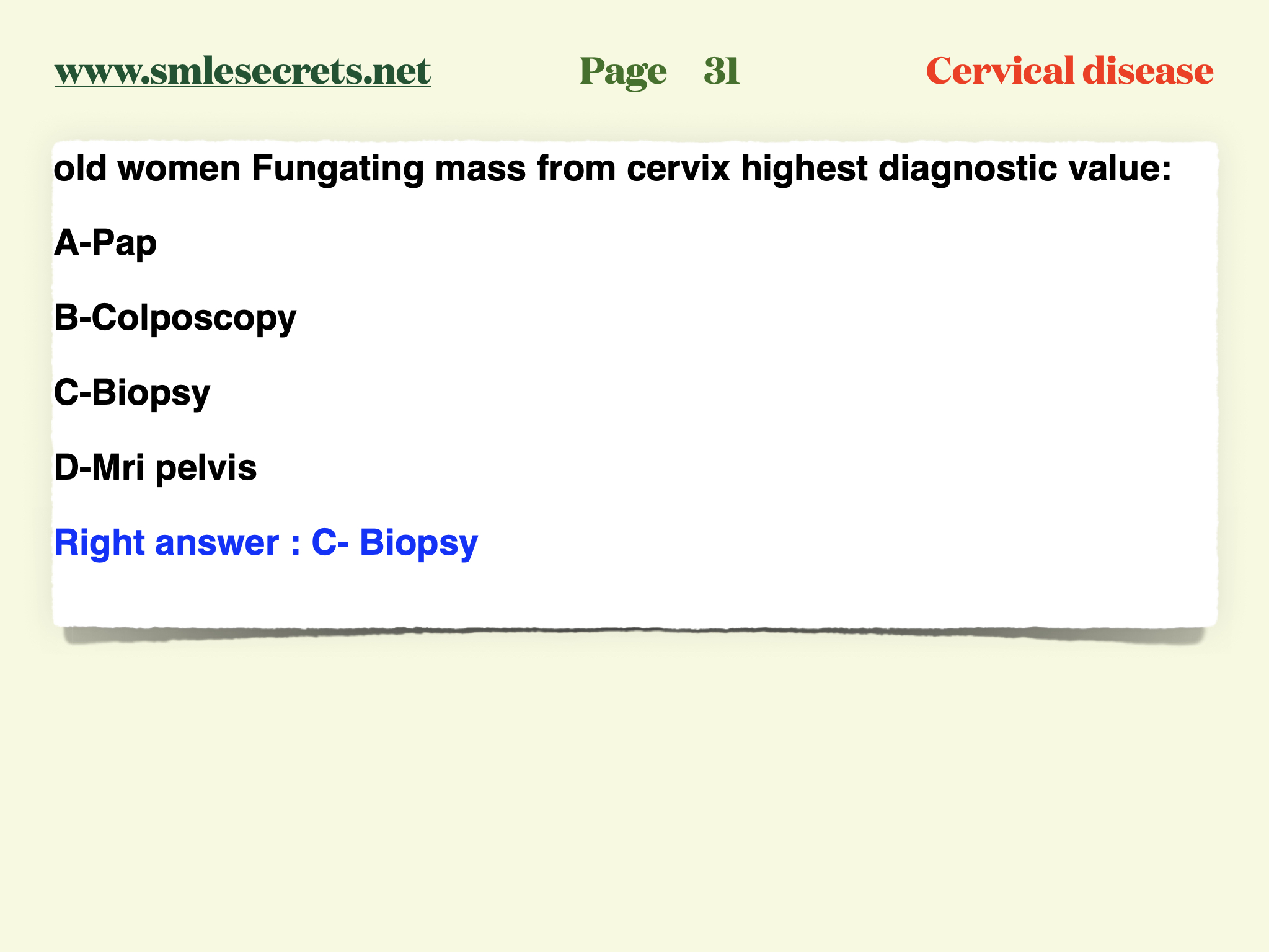
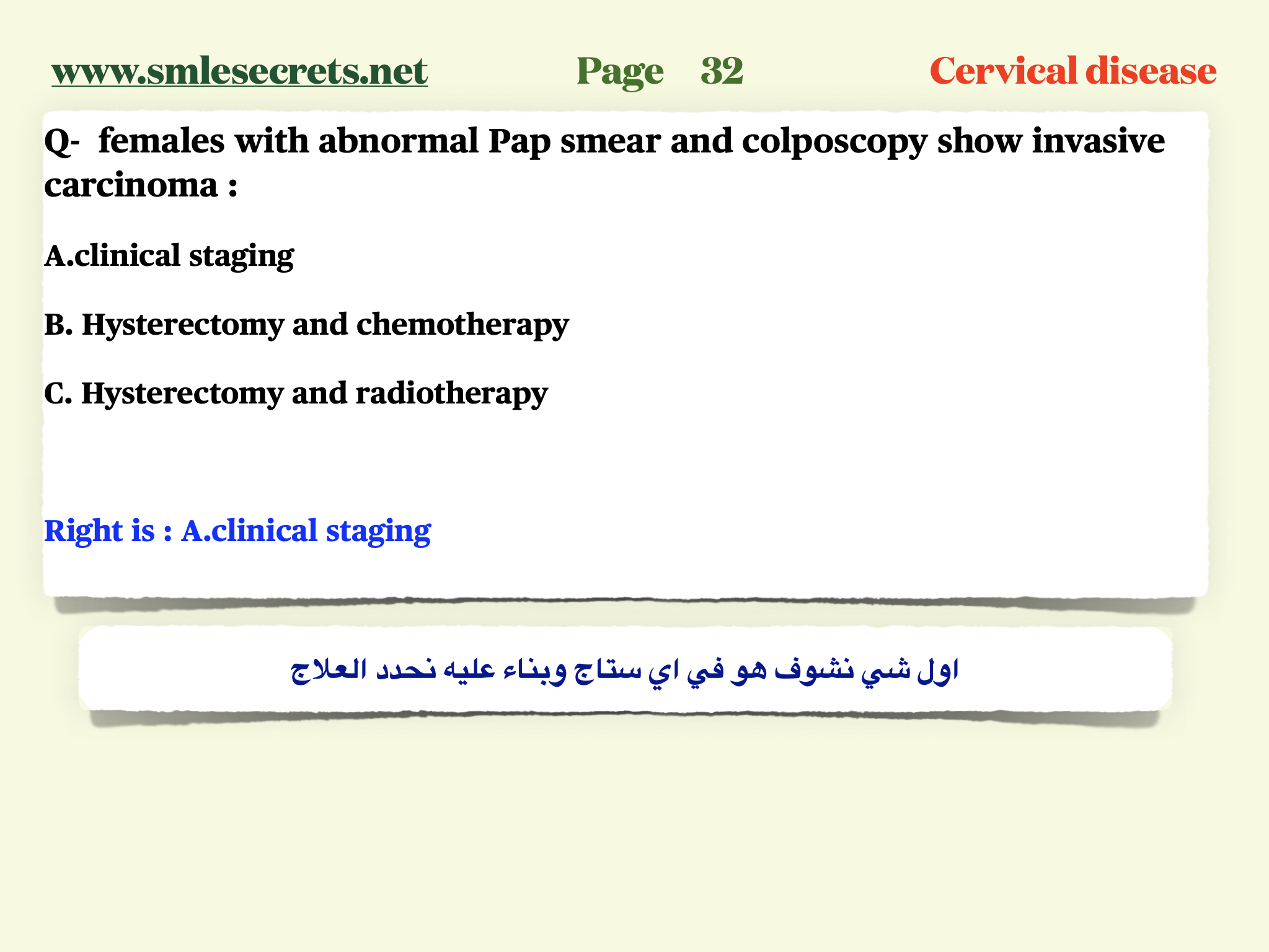
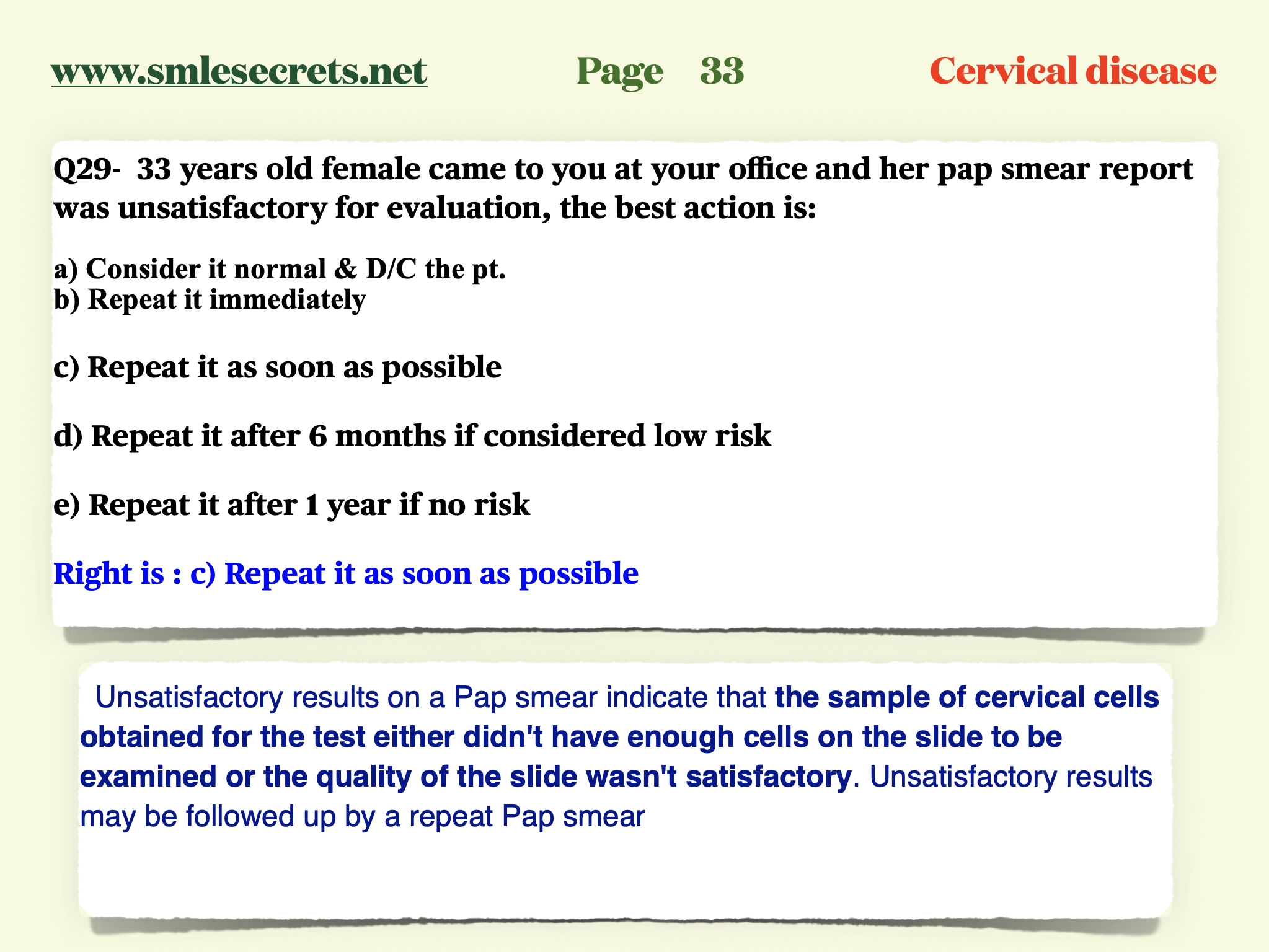
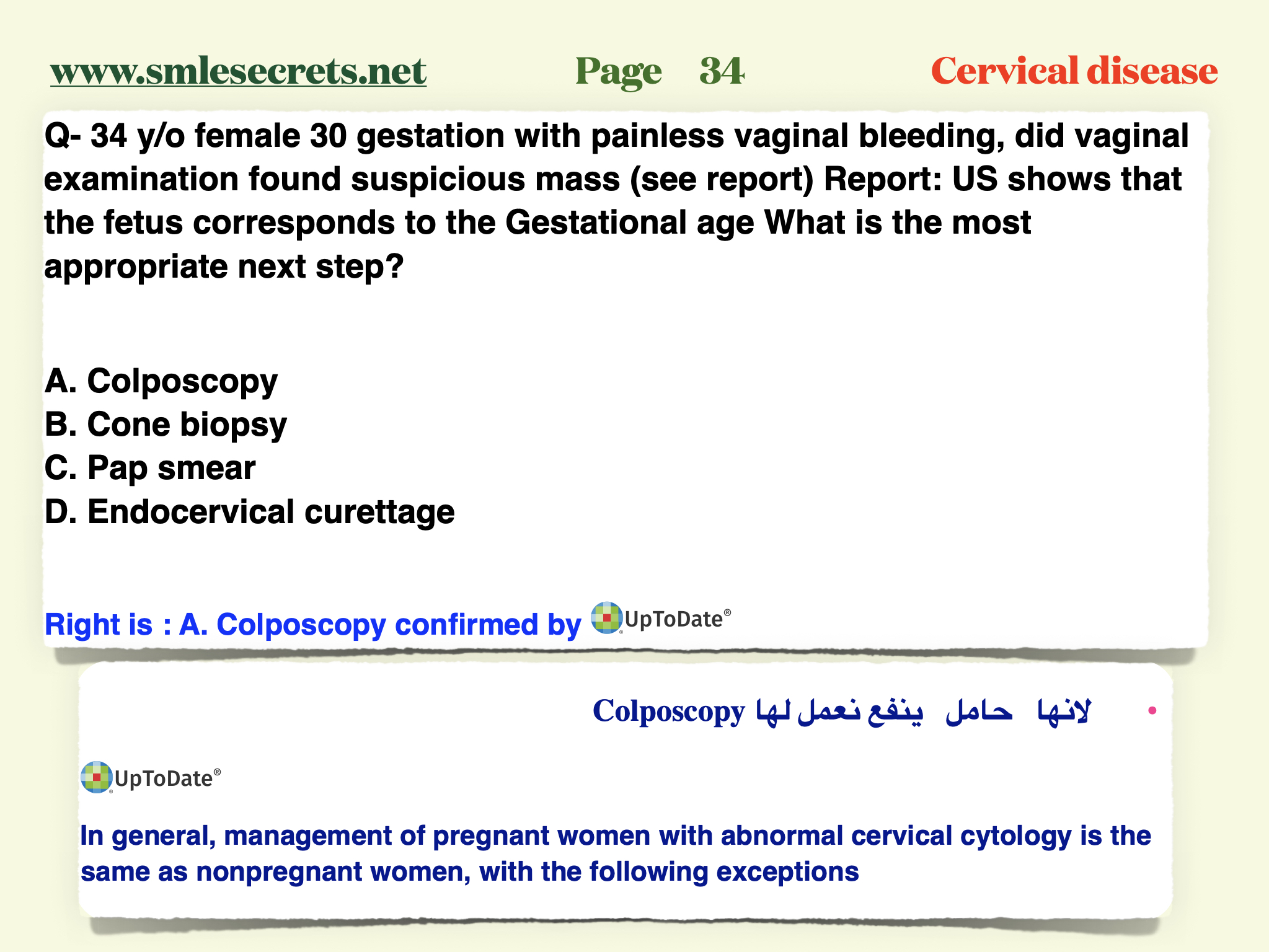
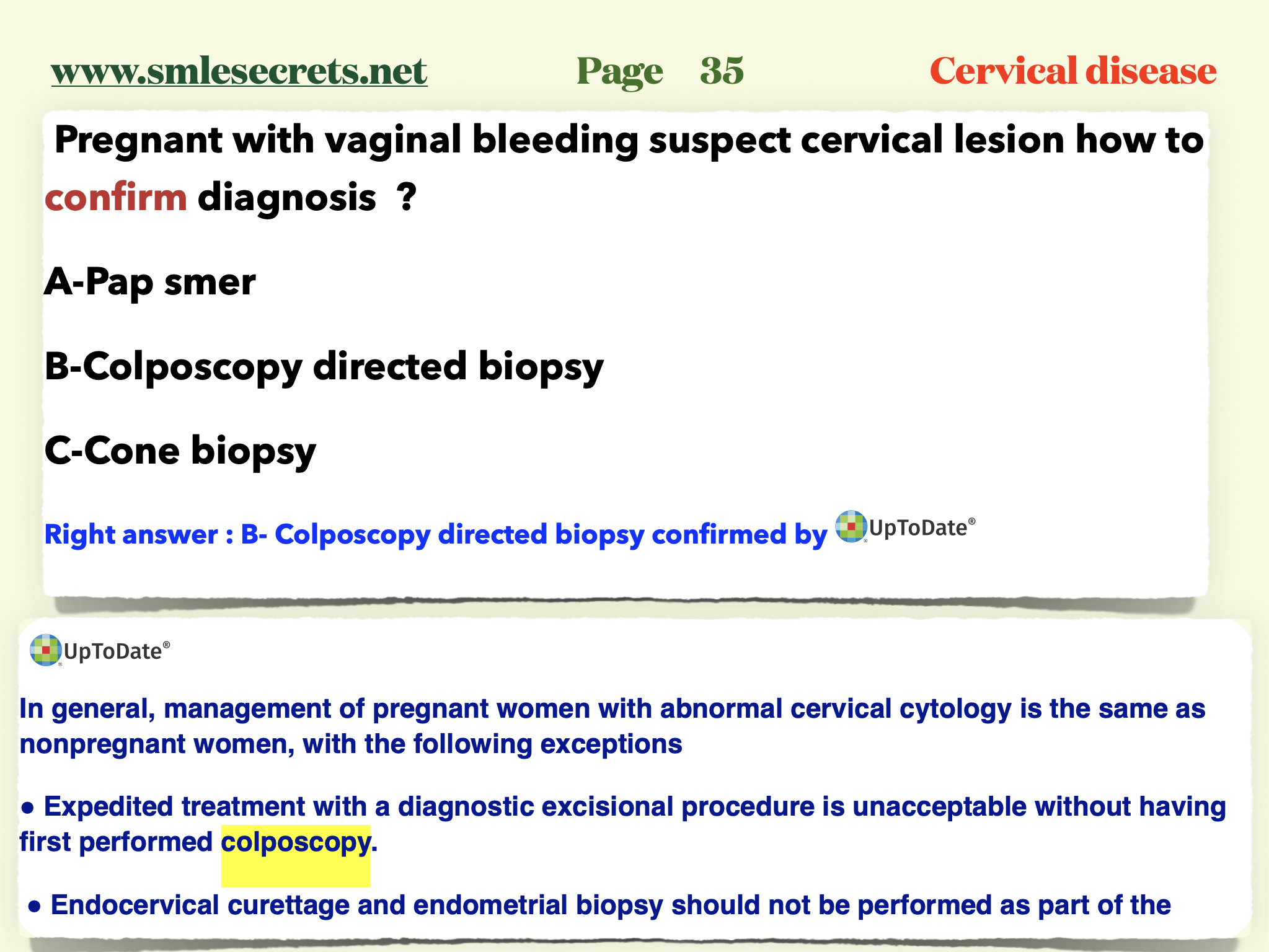
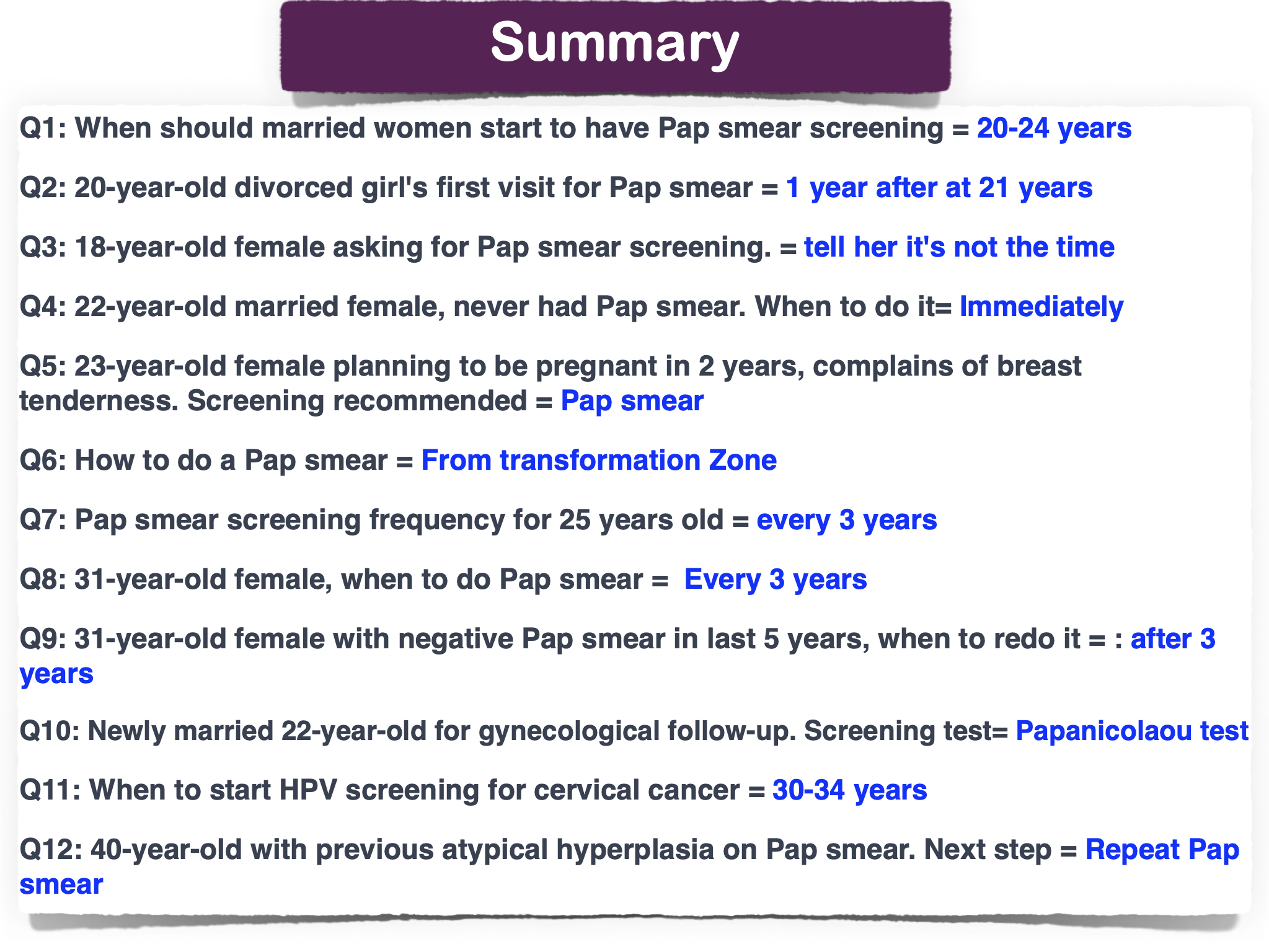
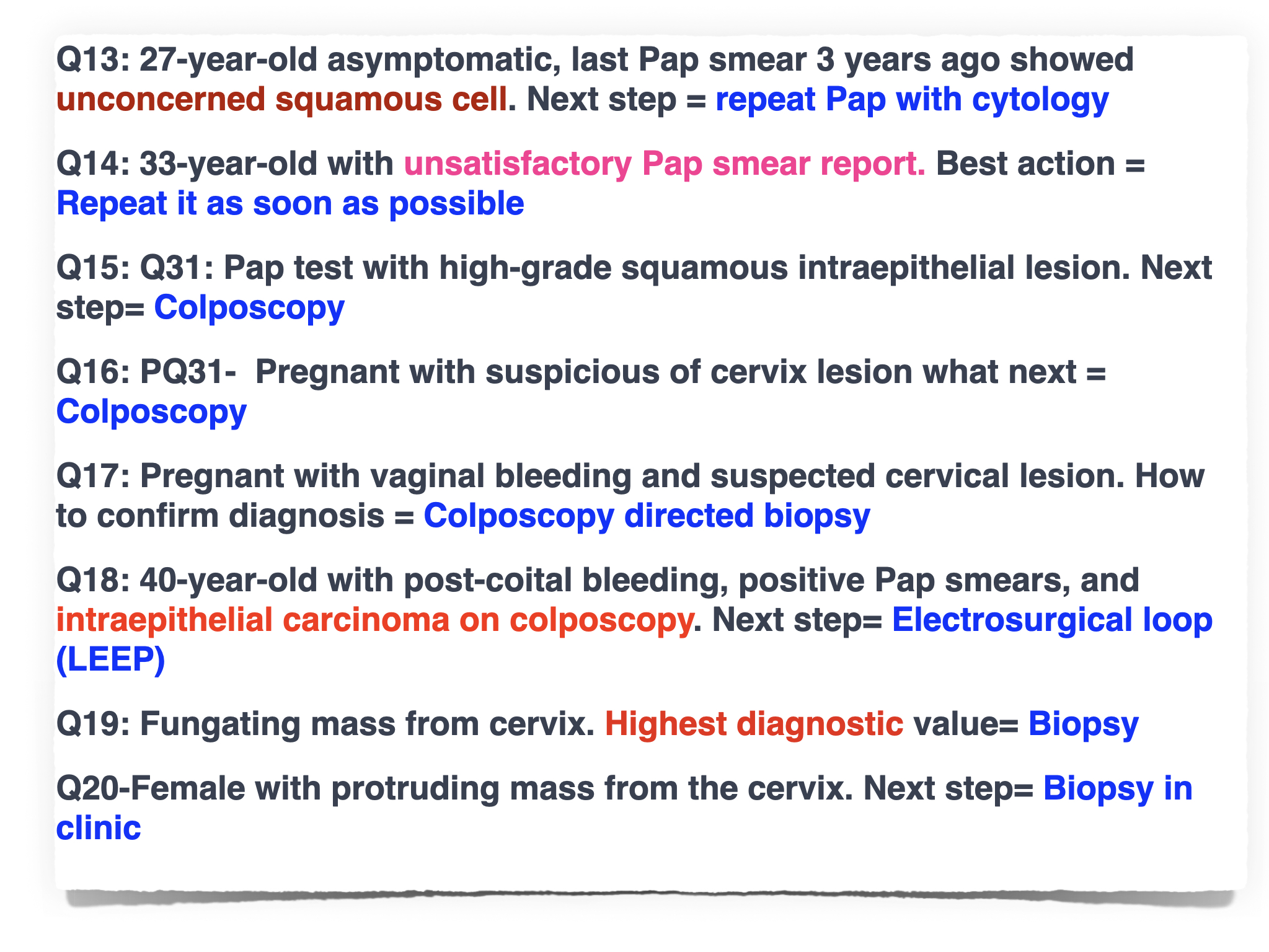
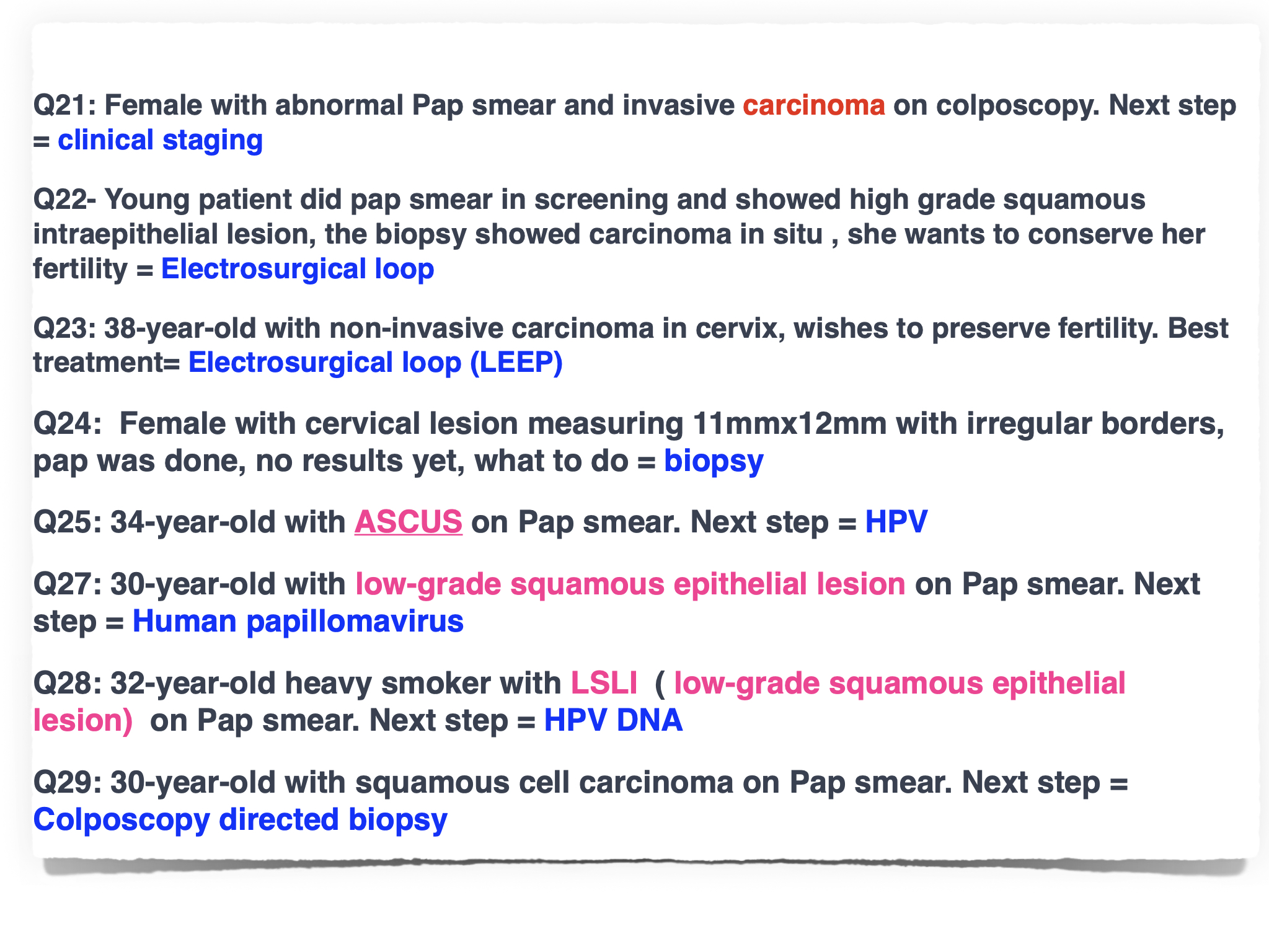
1 Comment
alsahraahmed184
أغسطس 1, 2024my god bless you